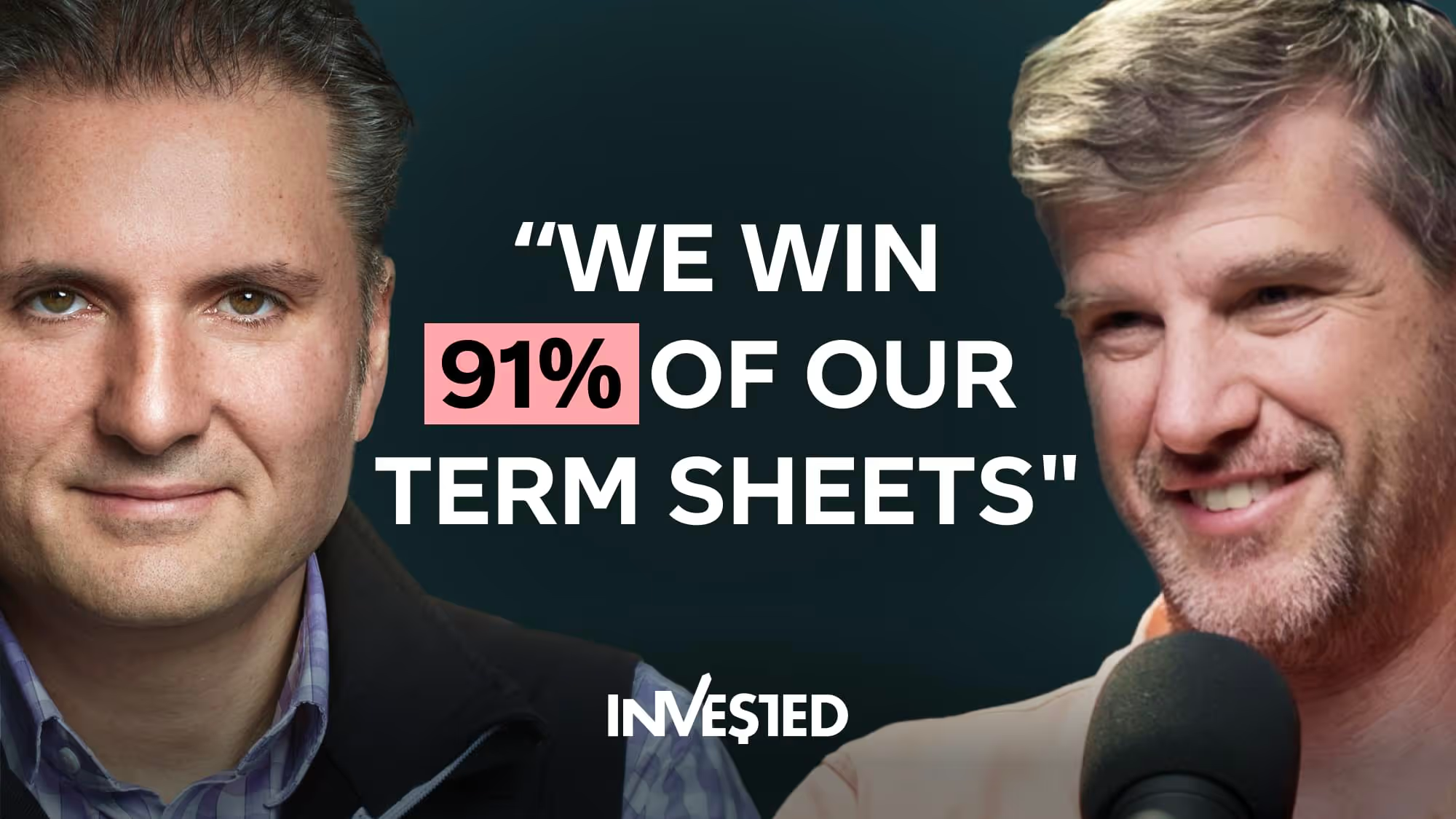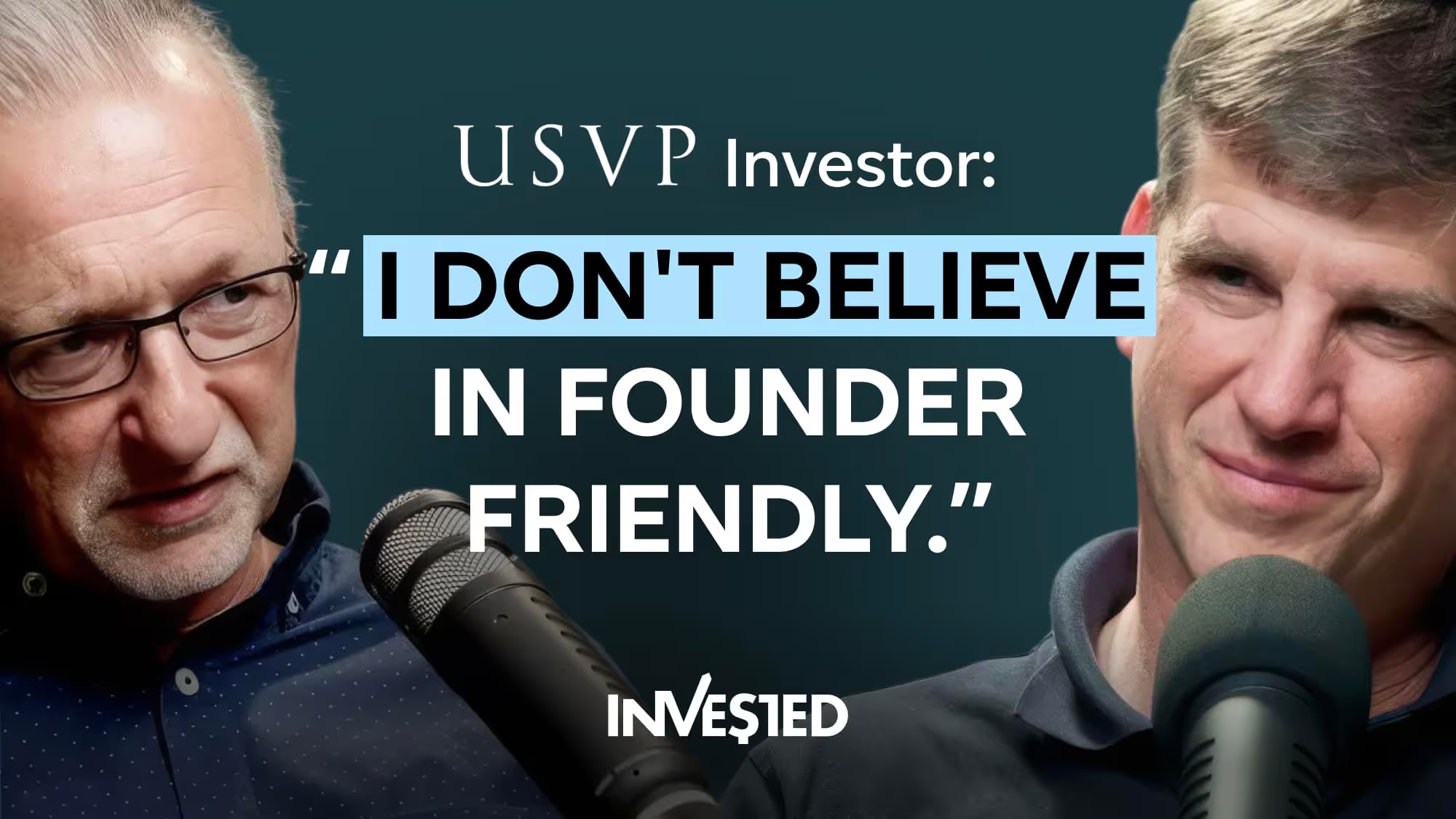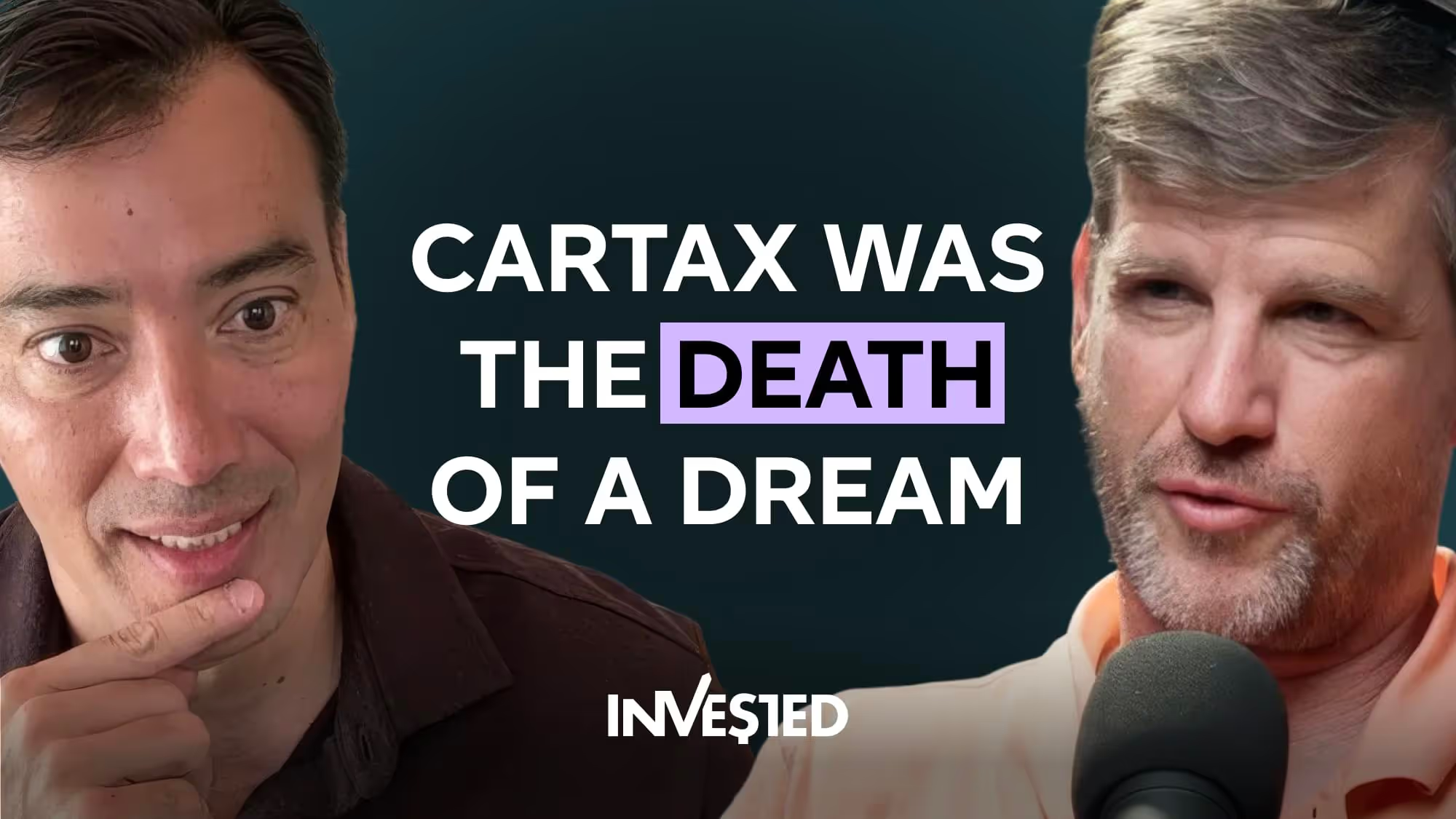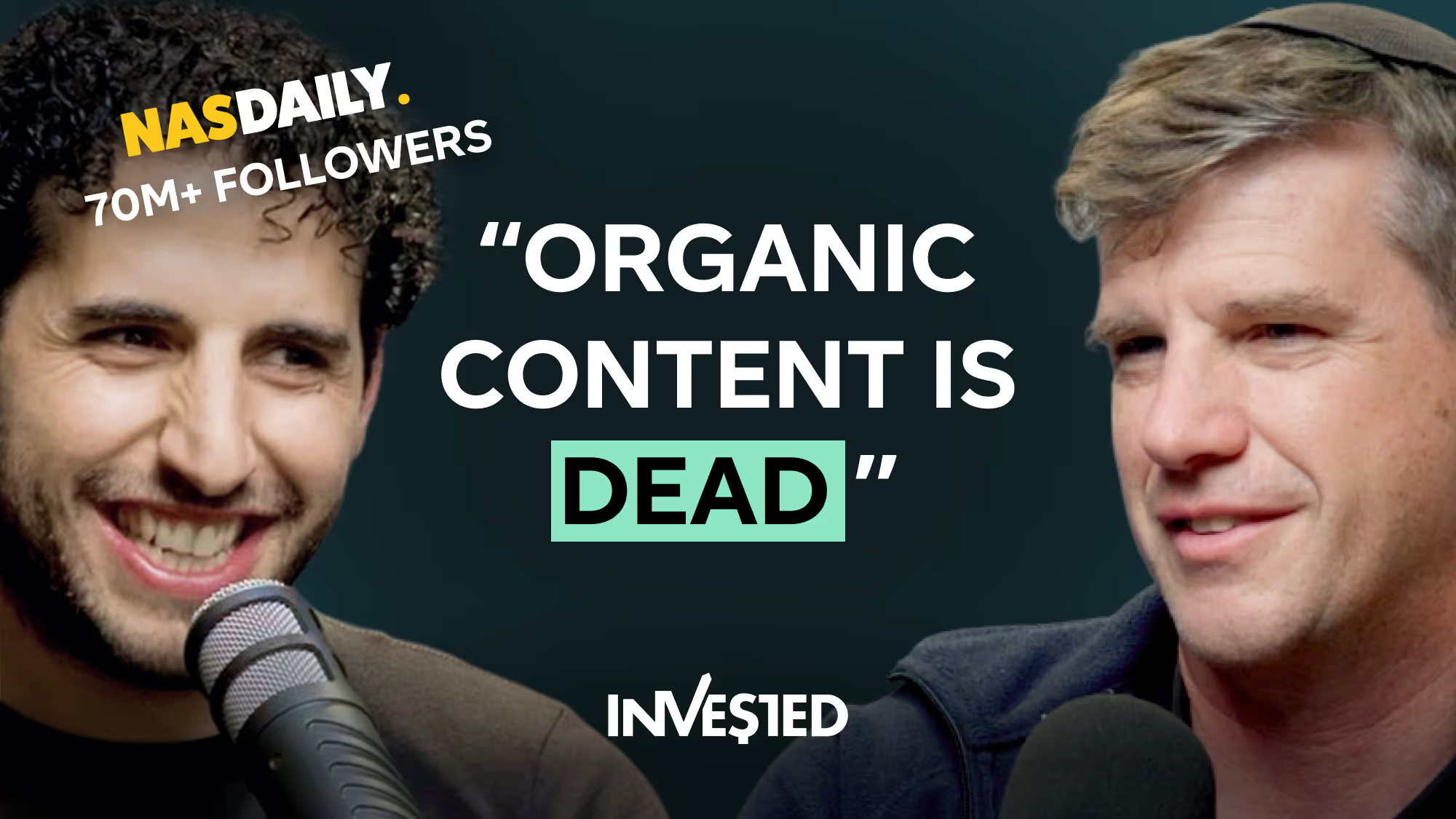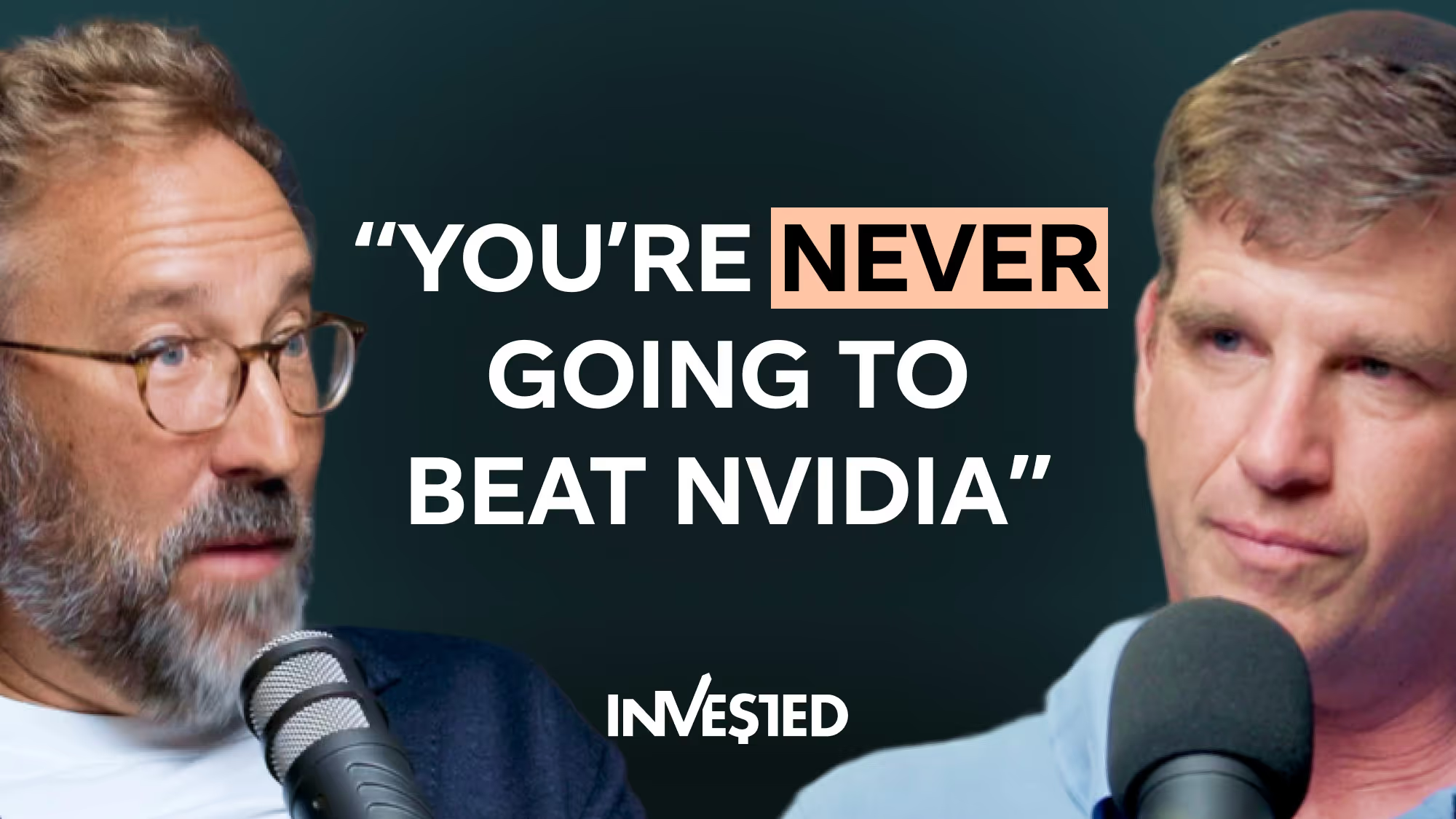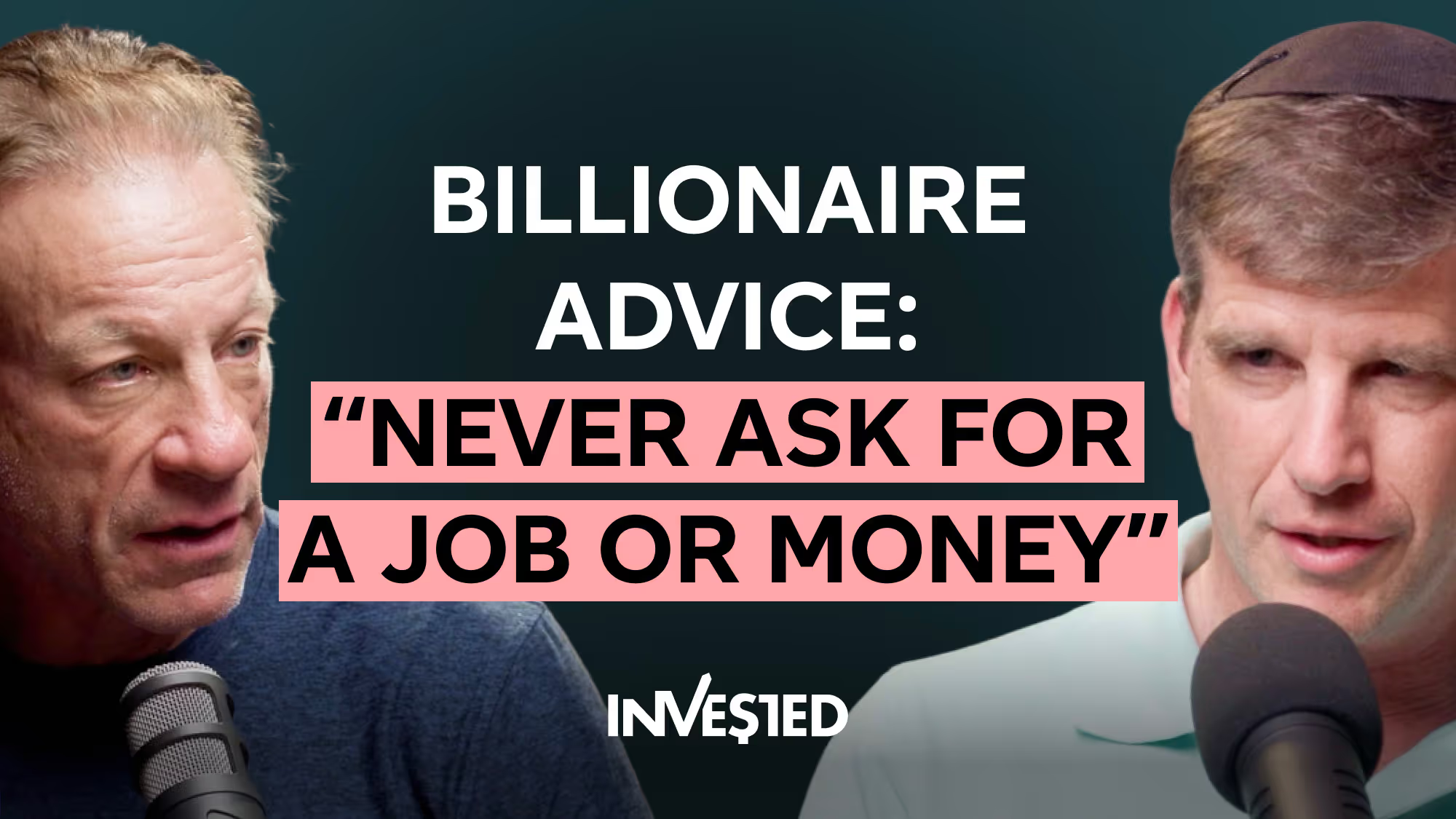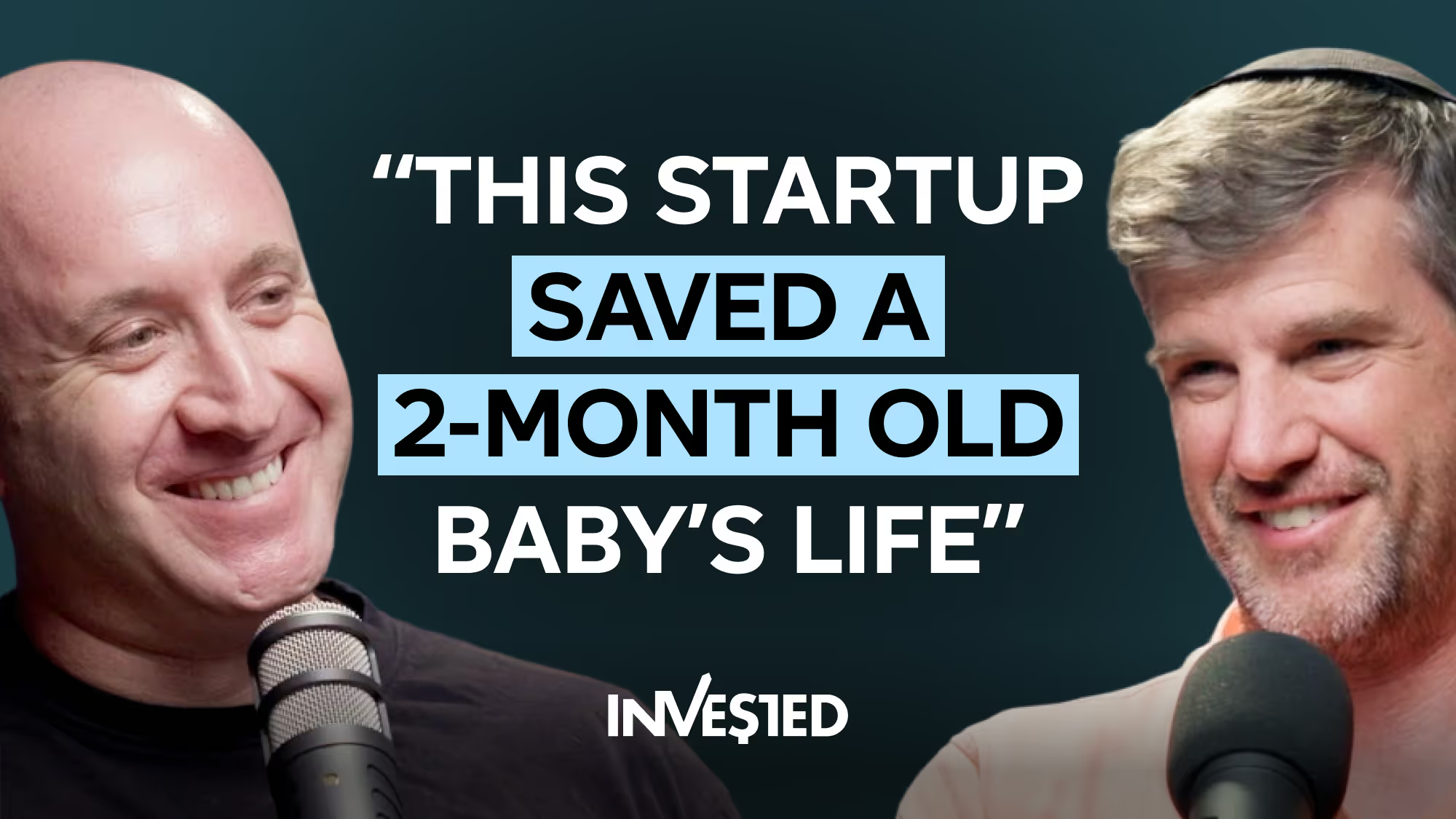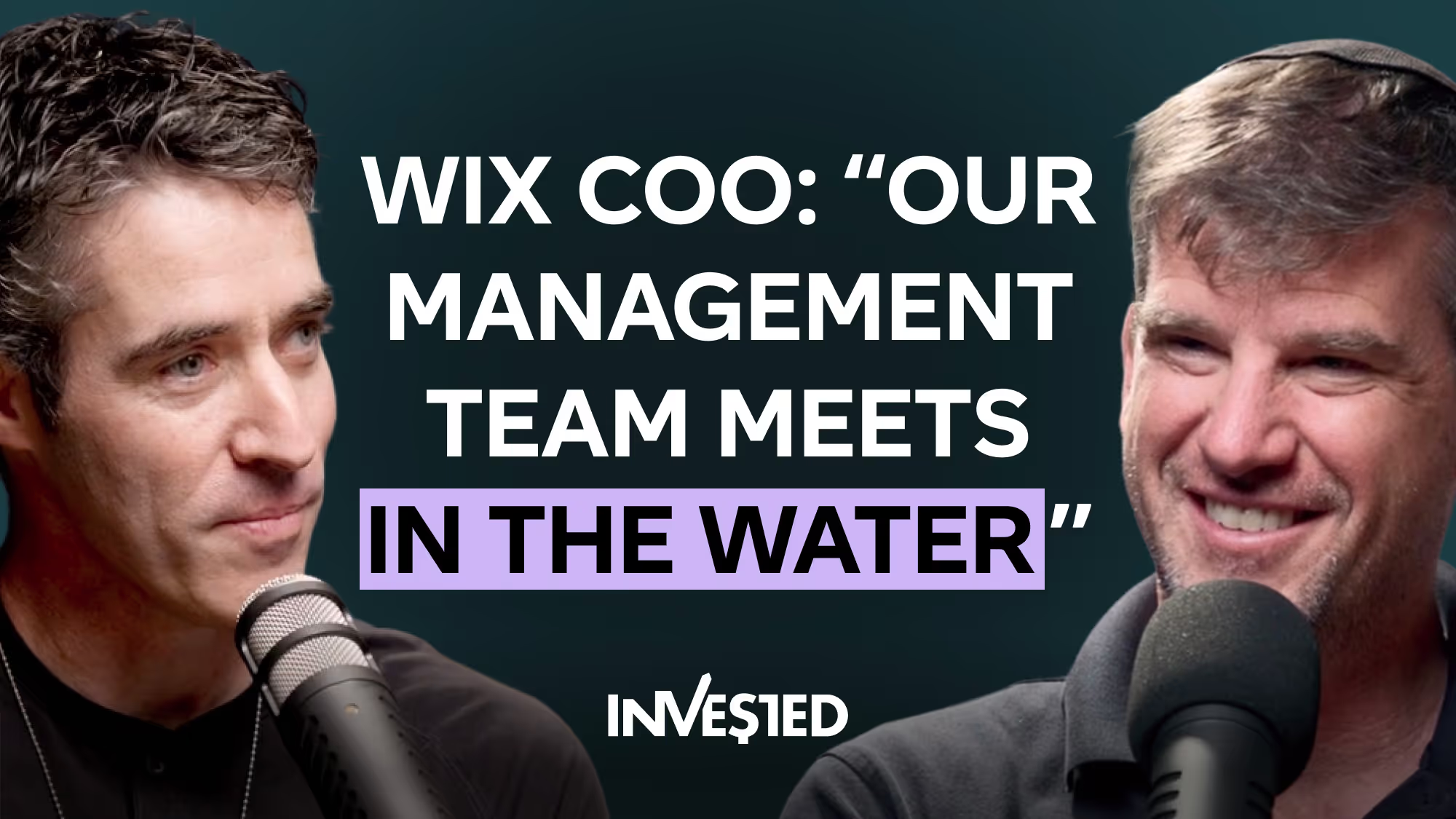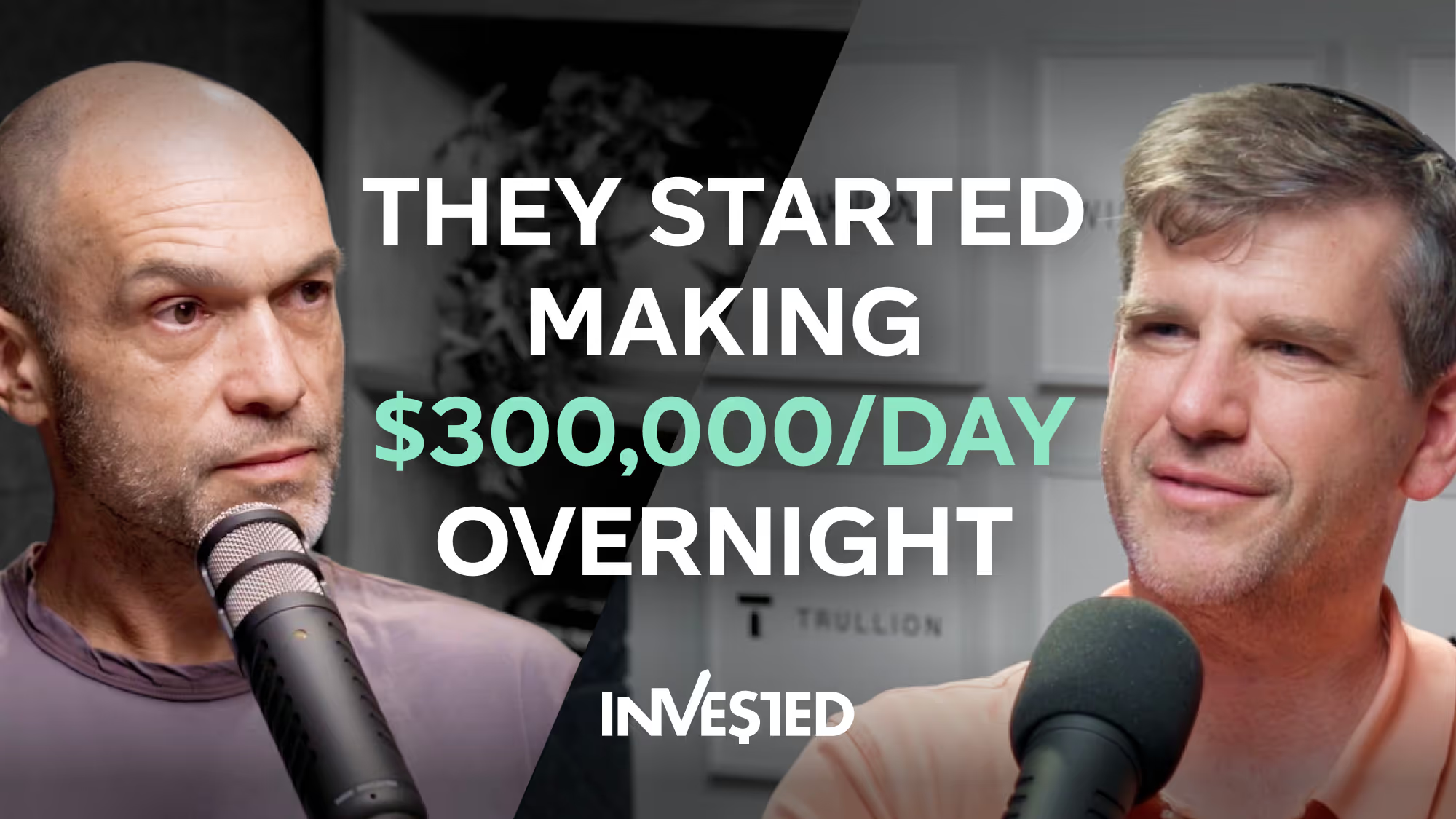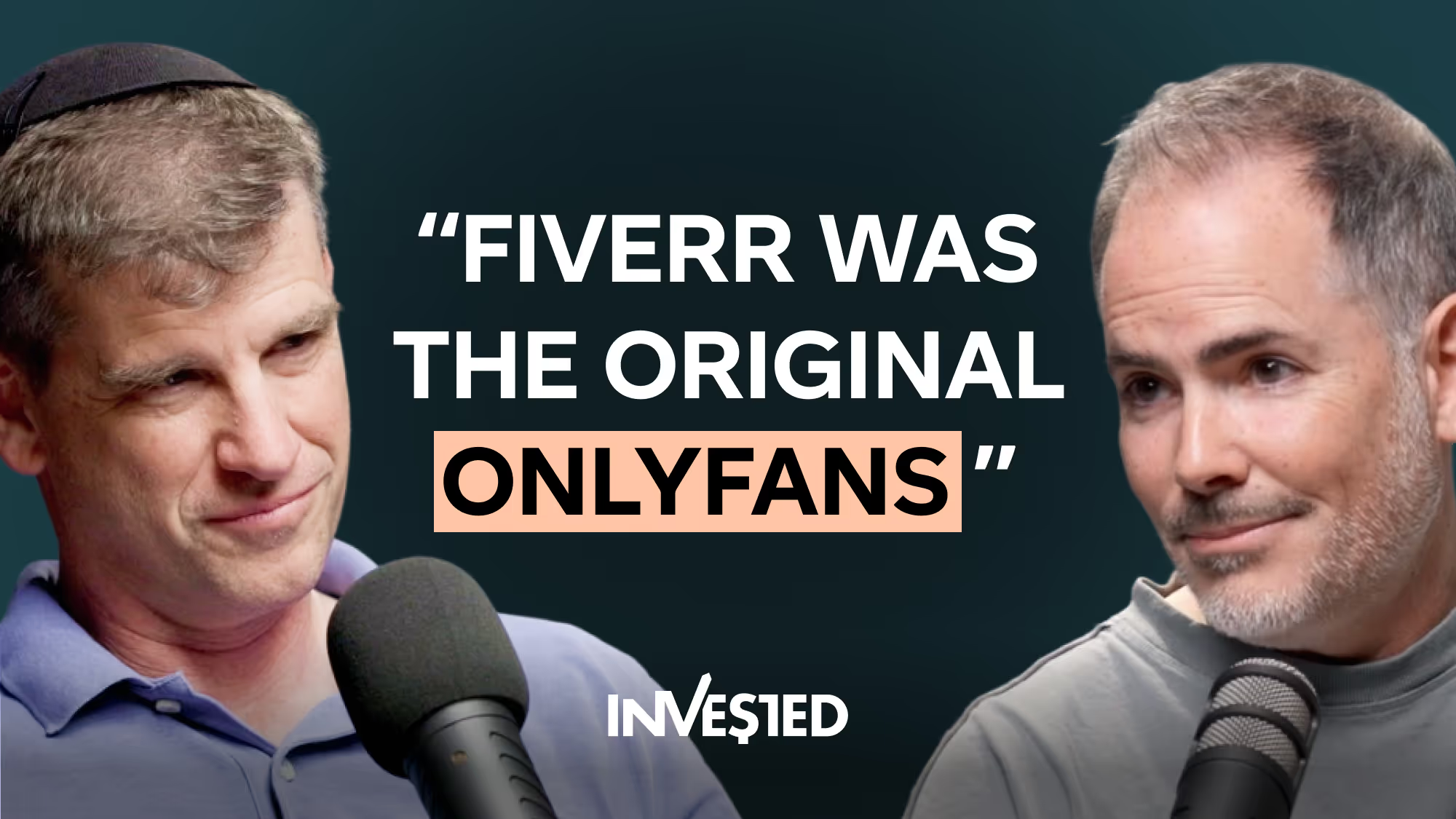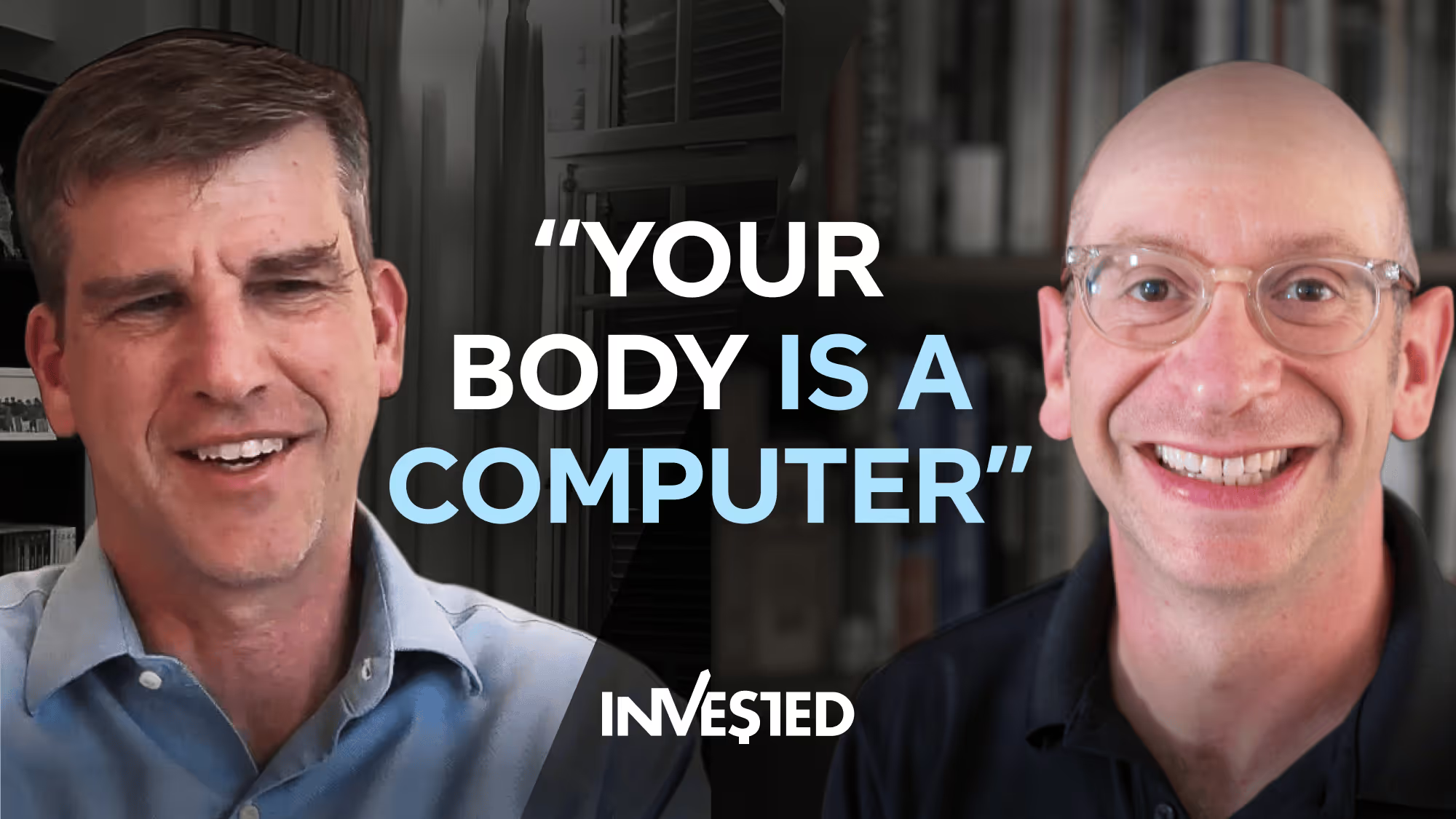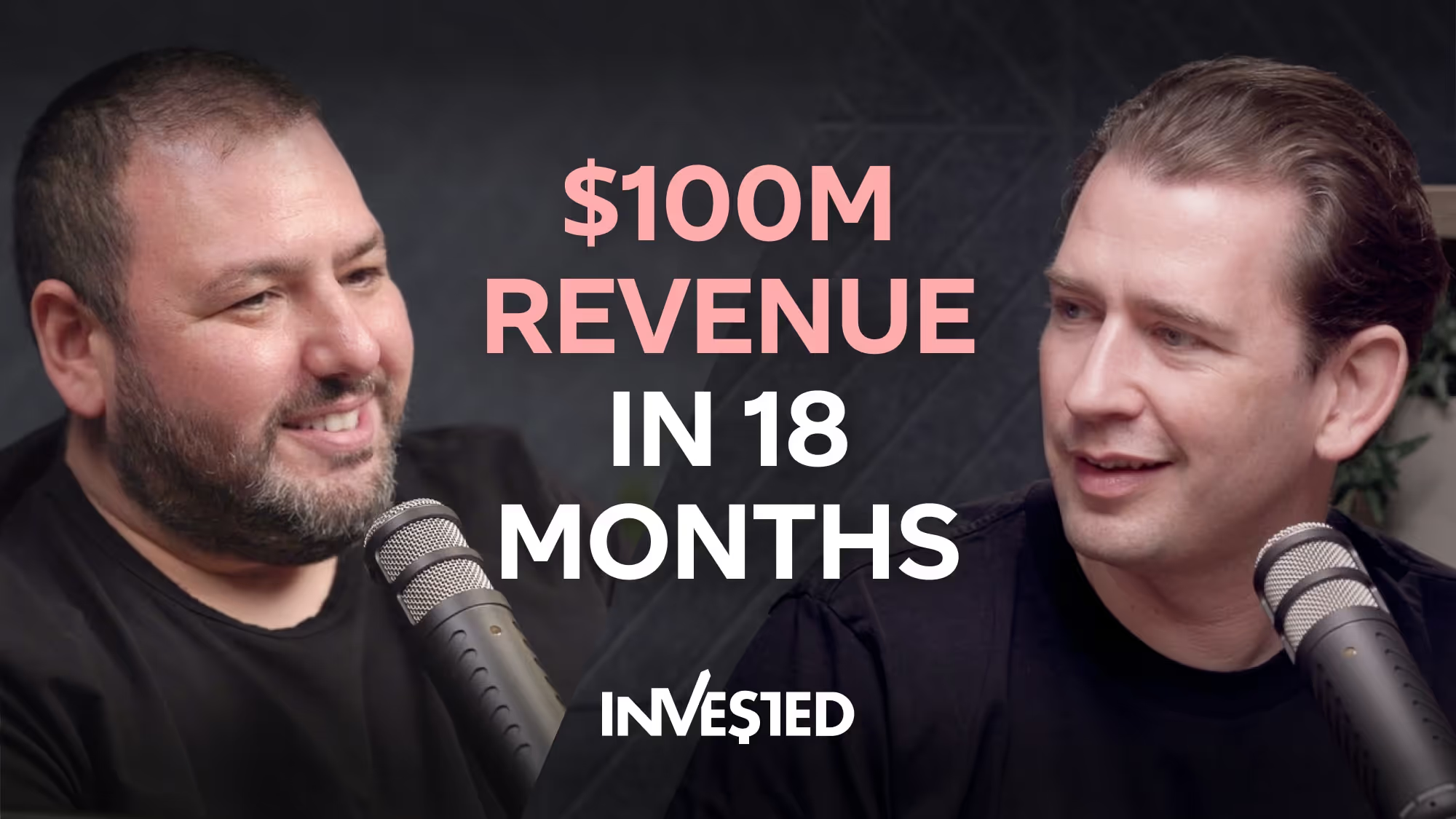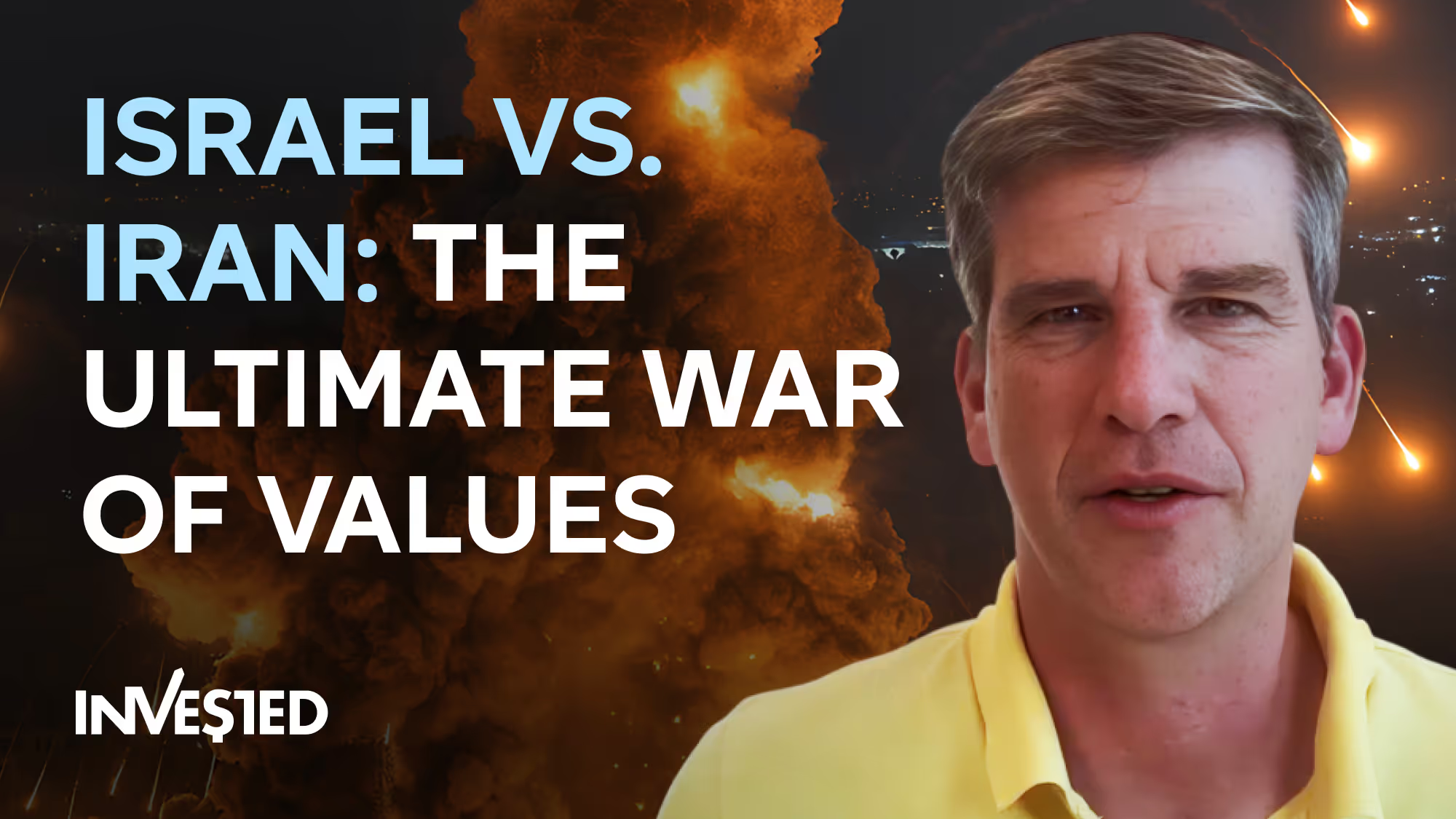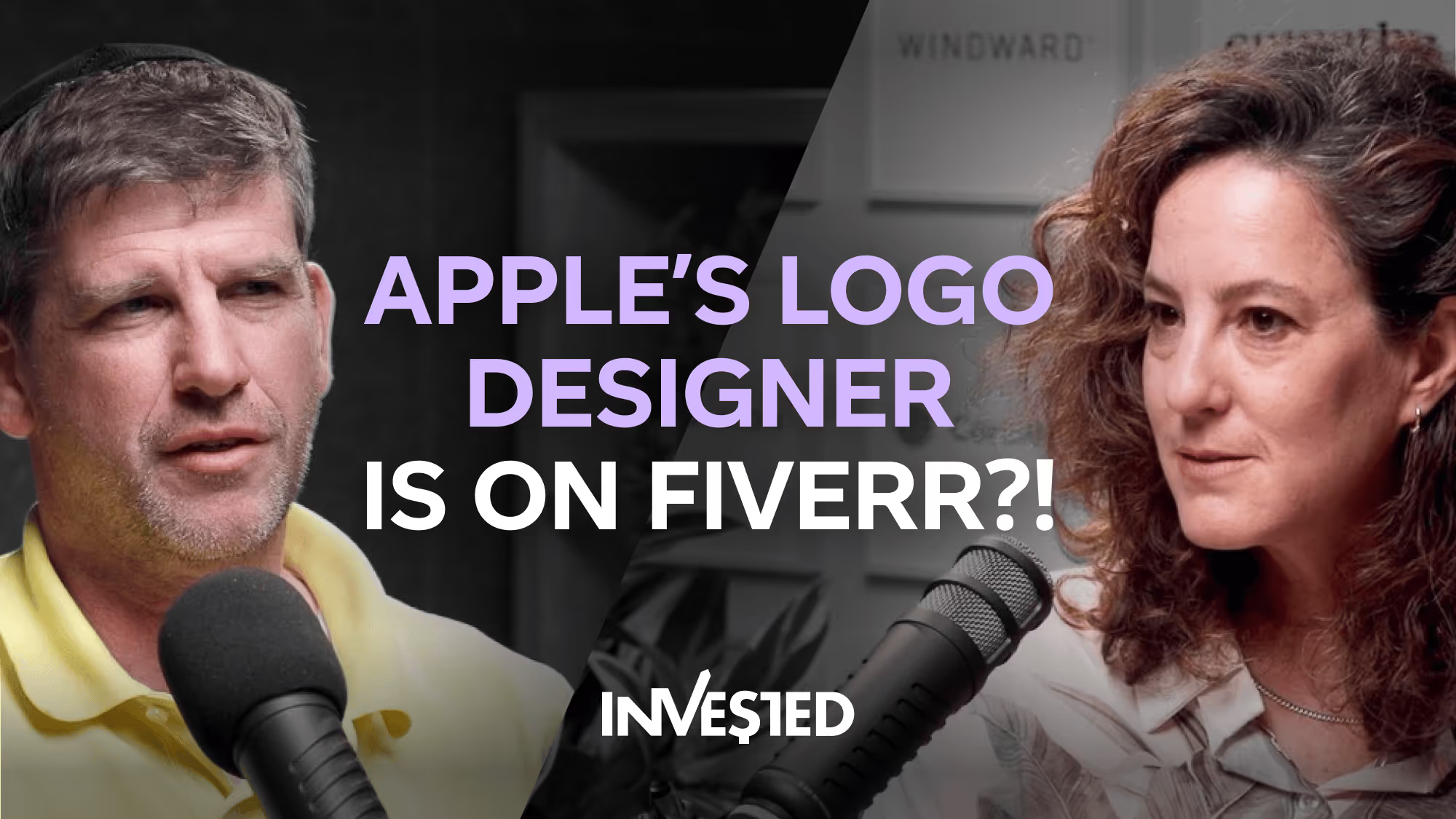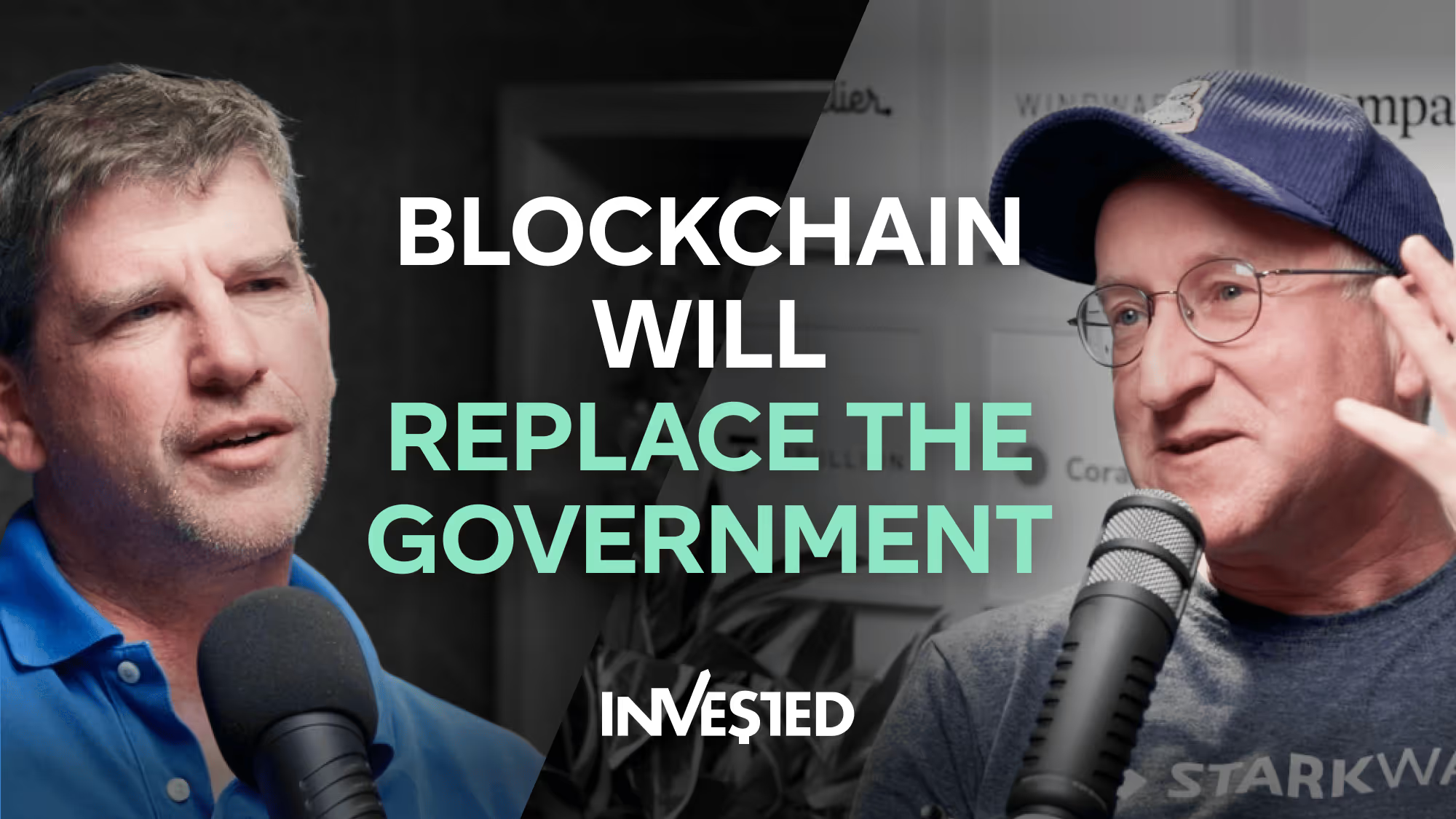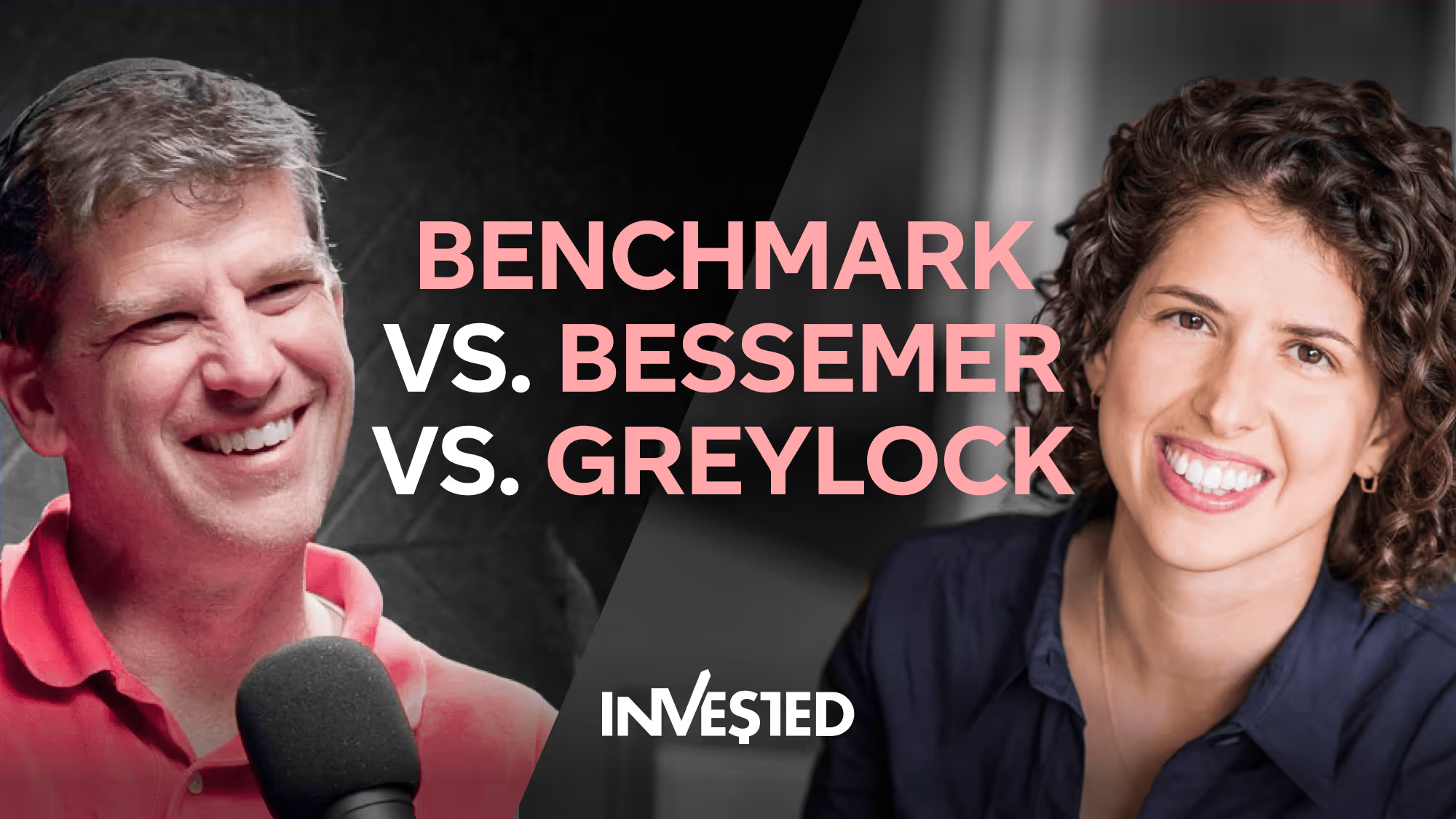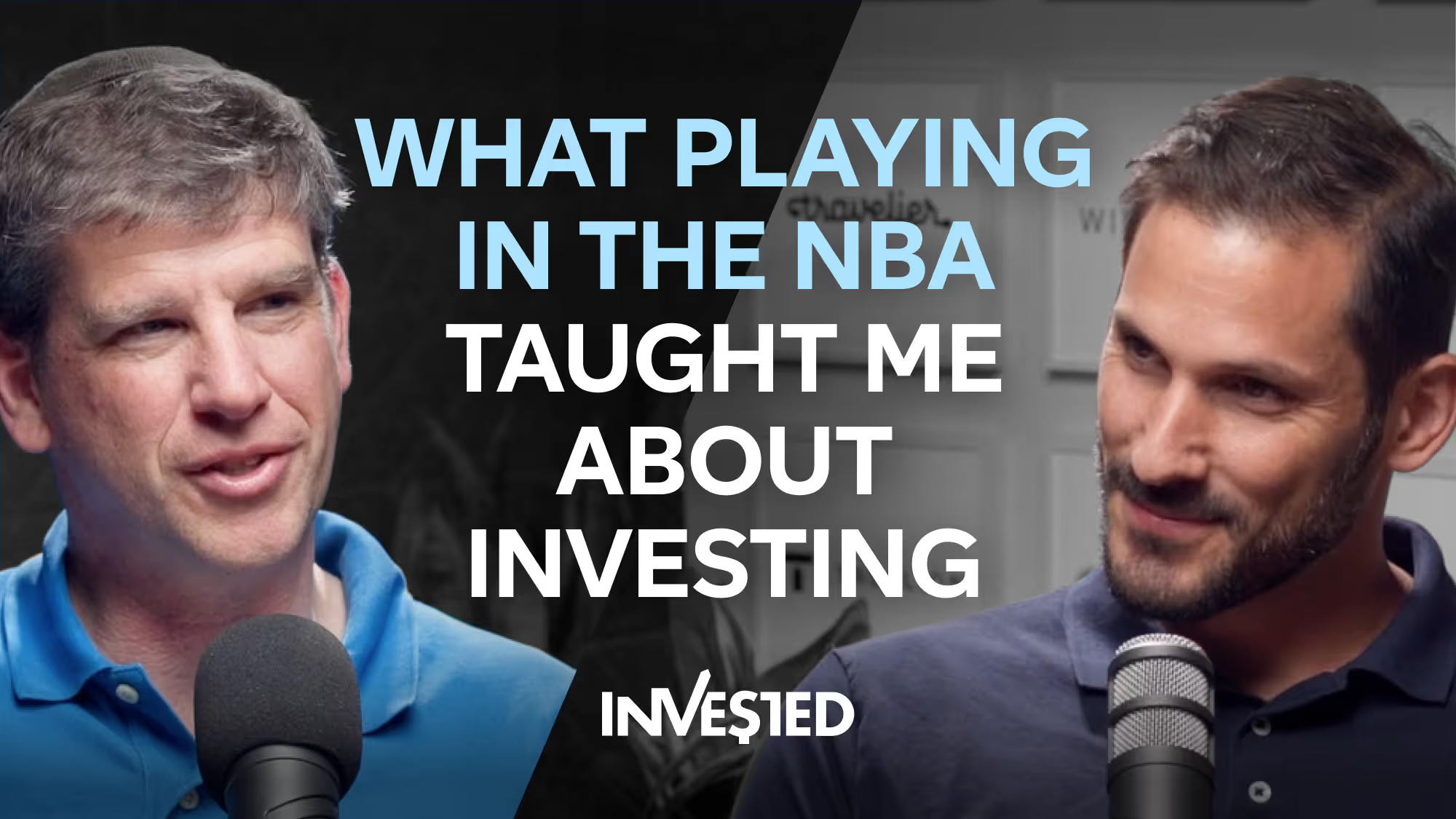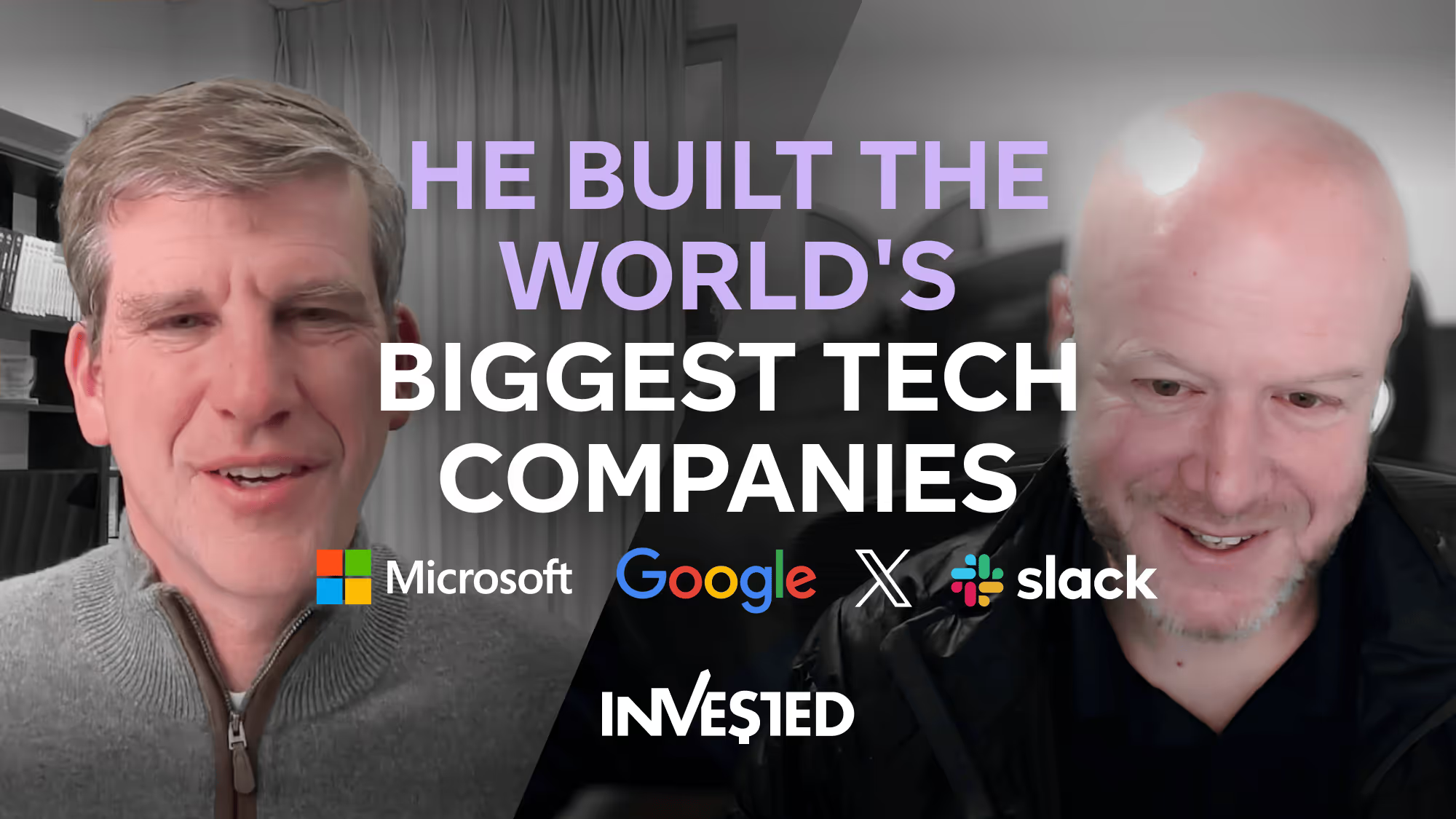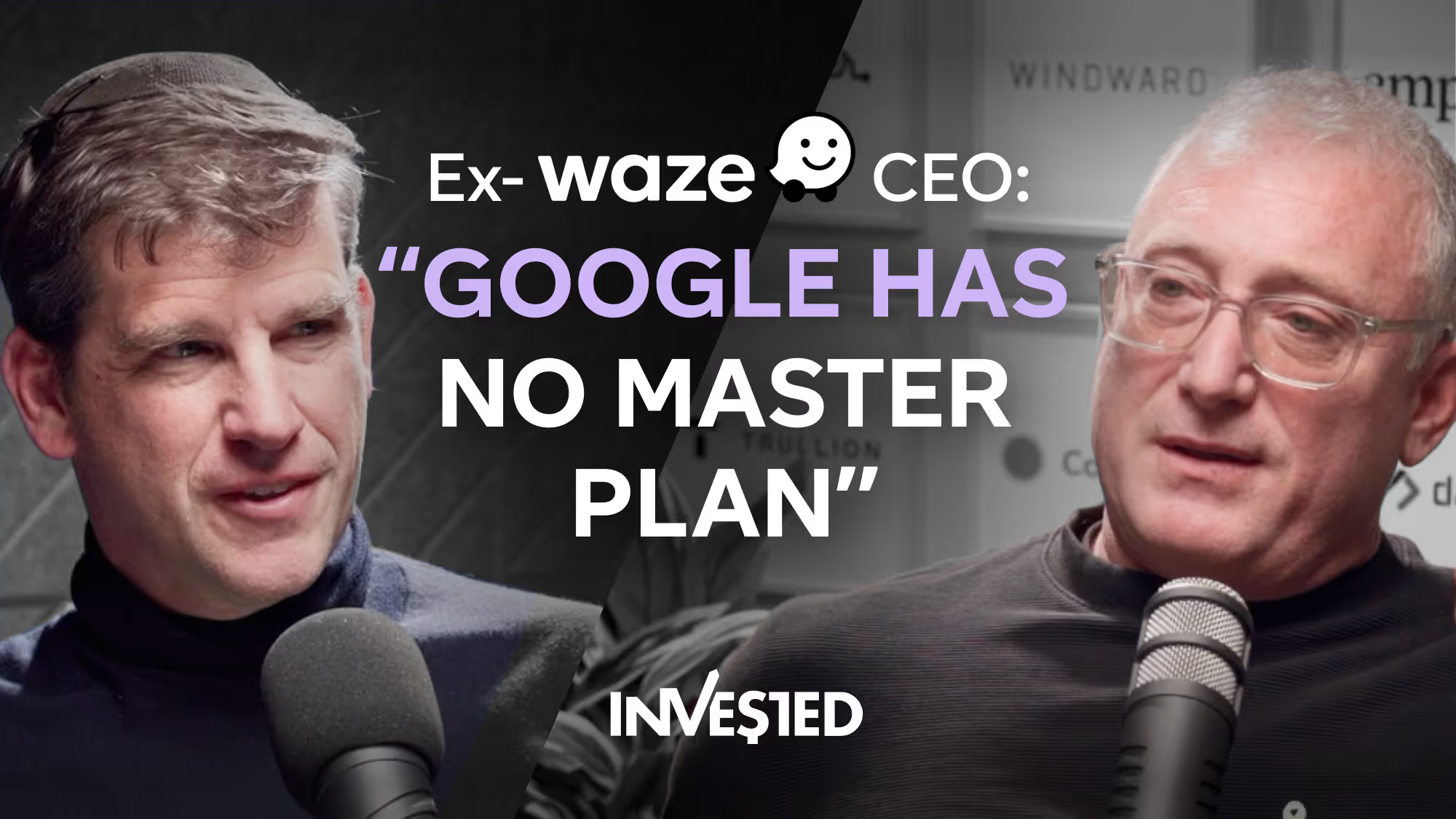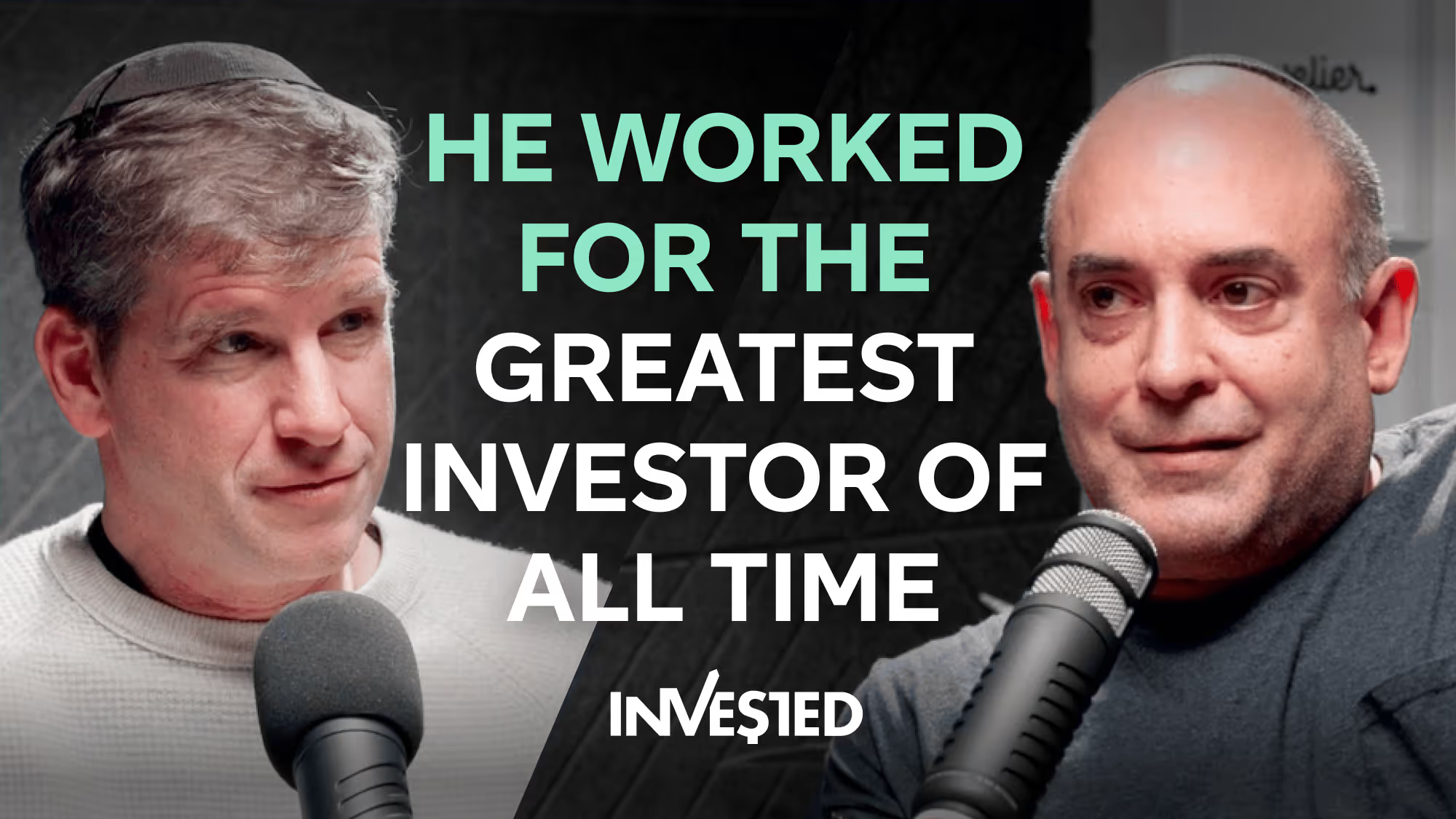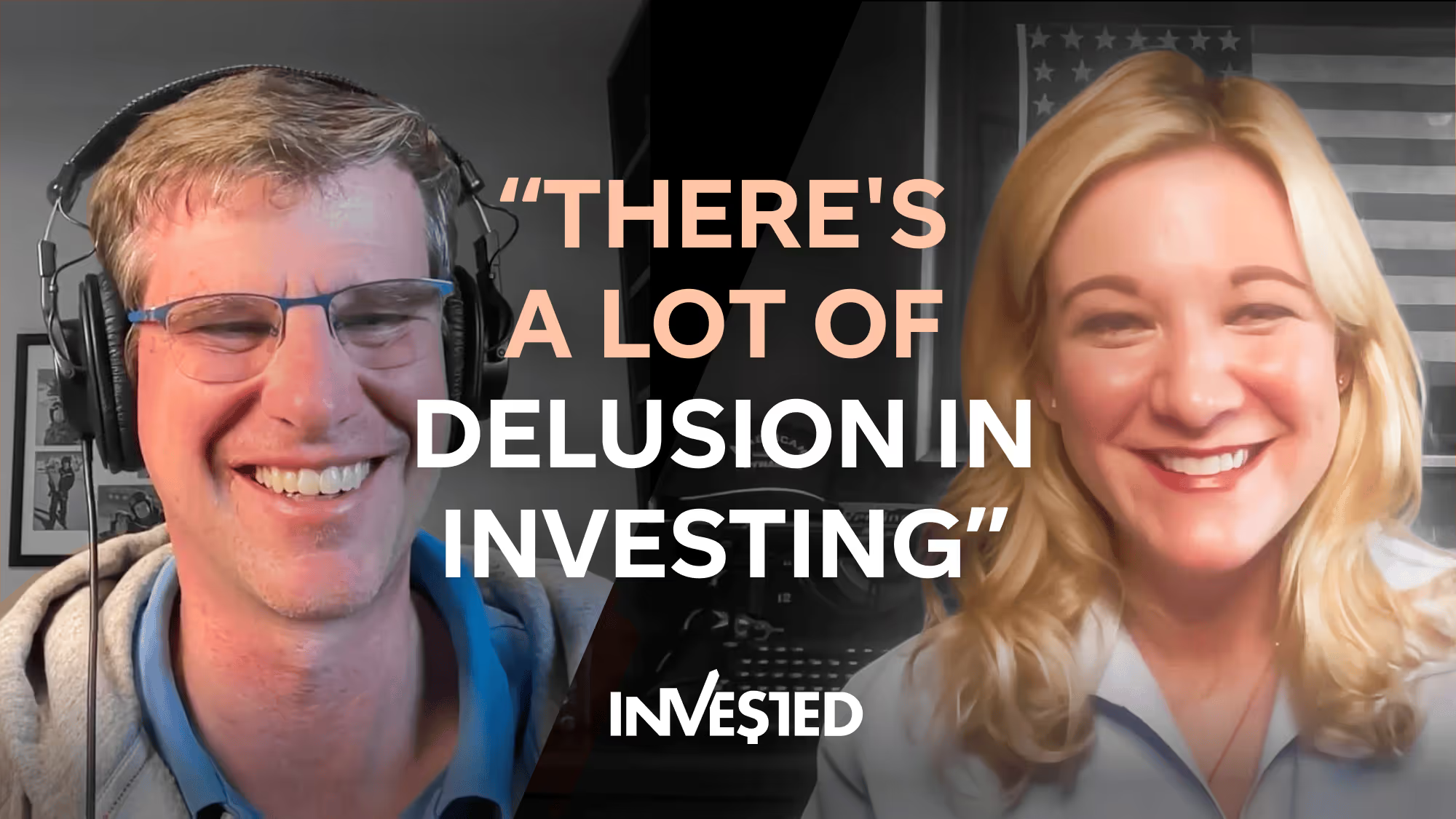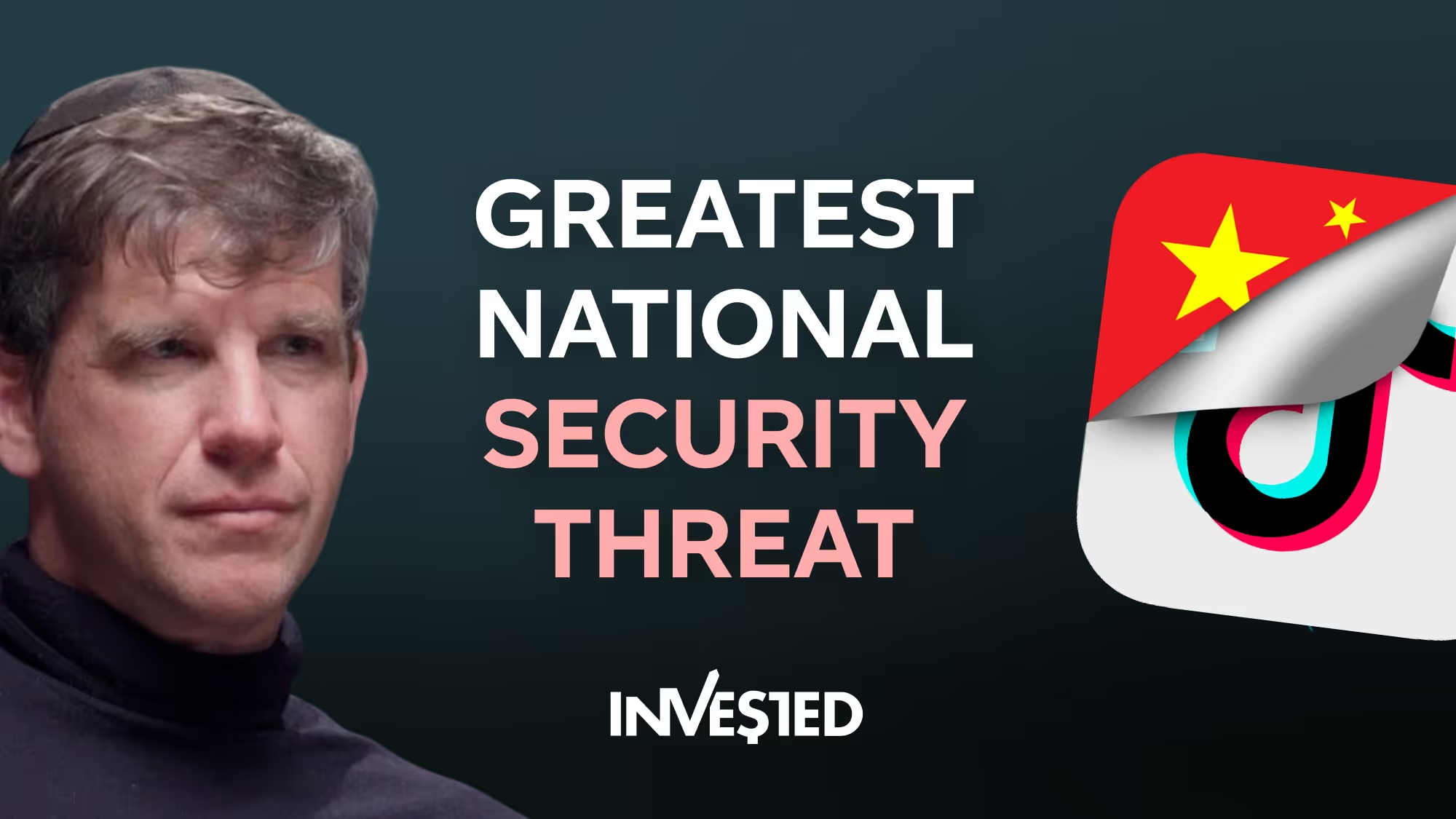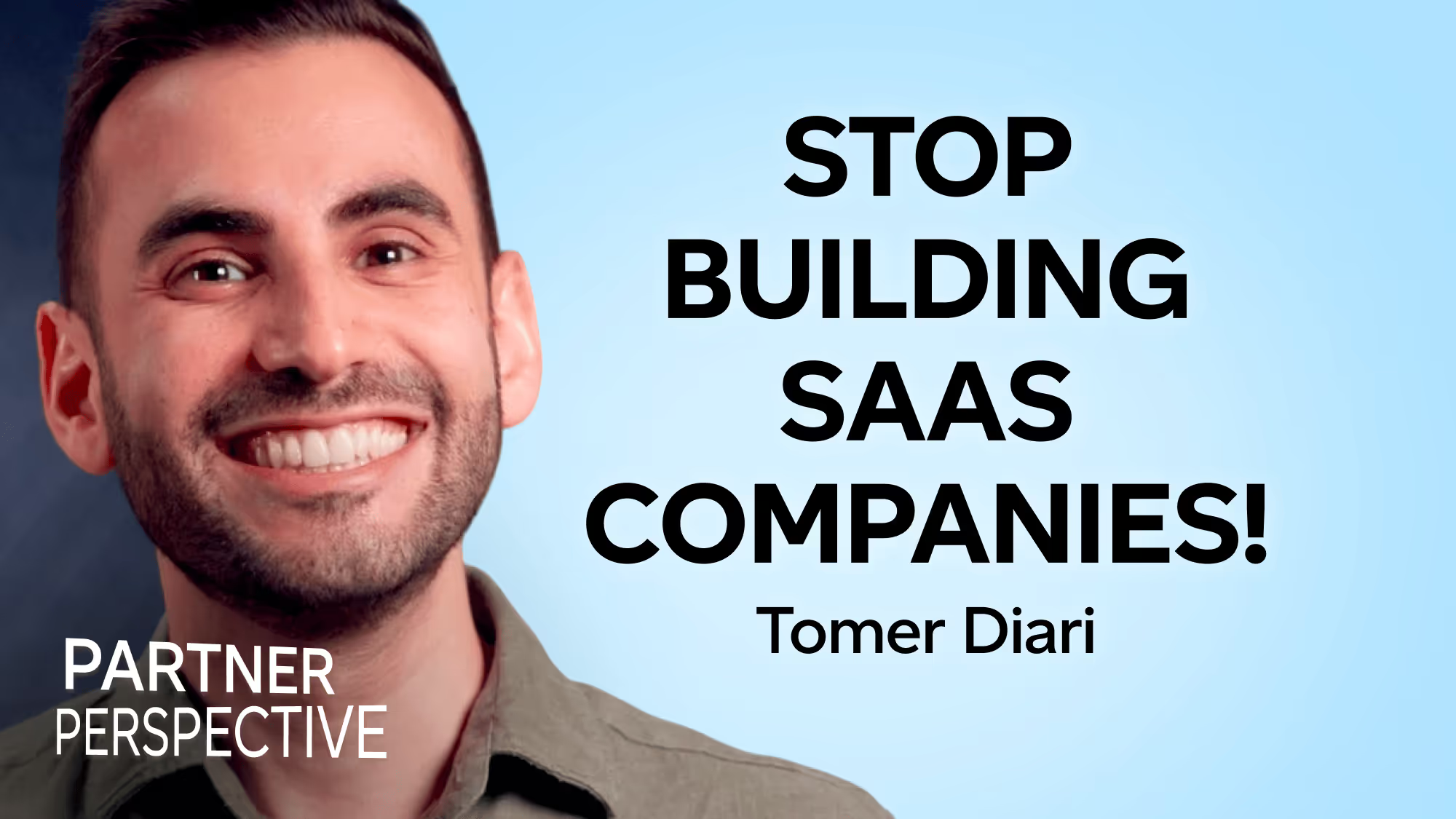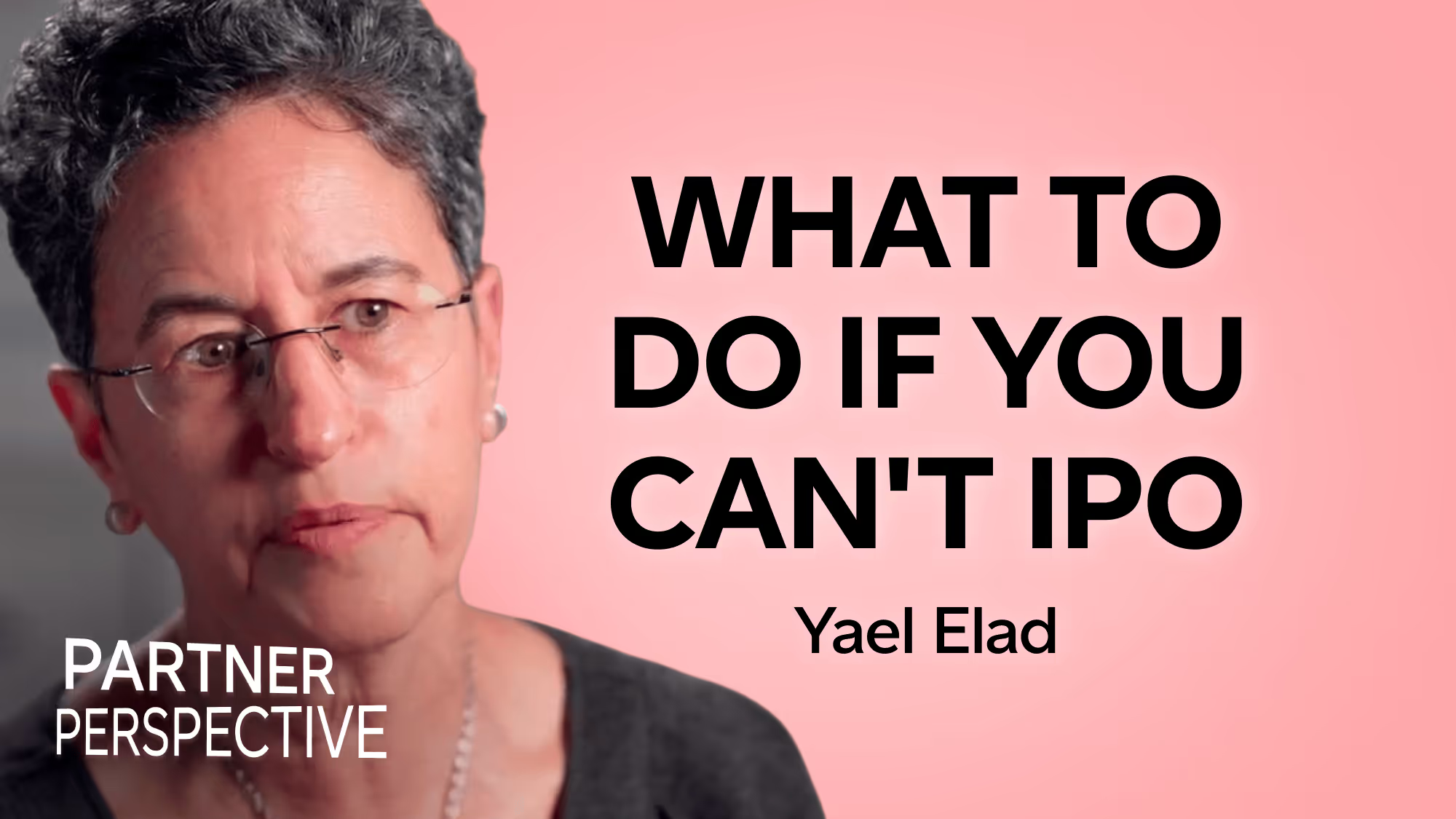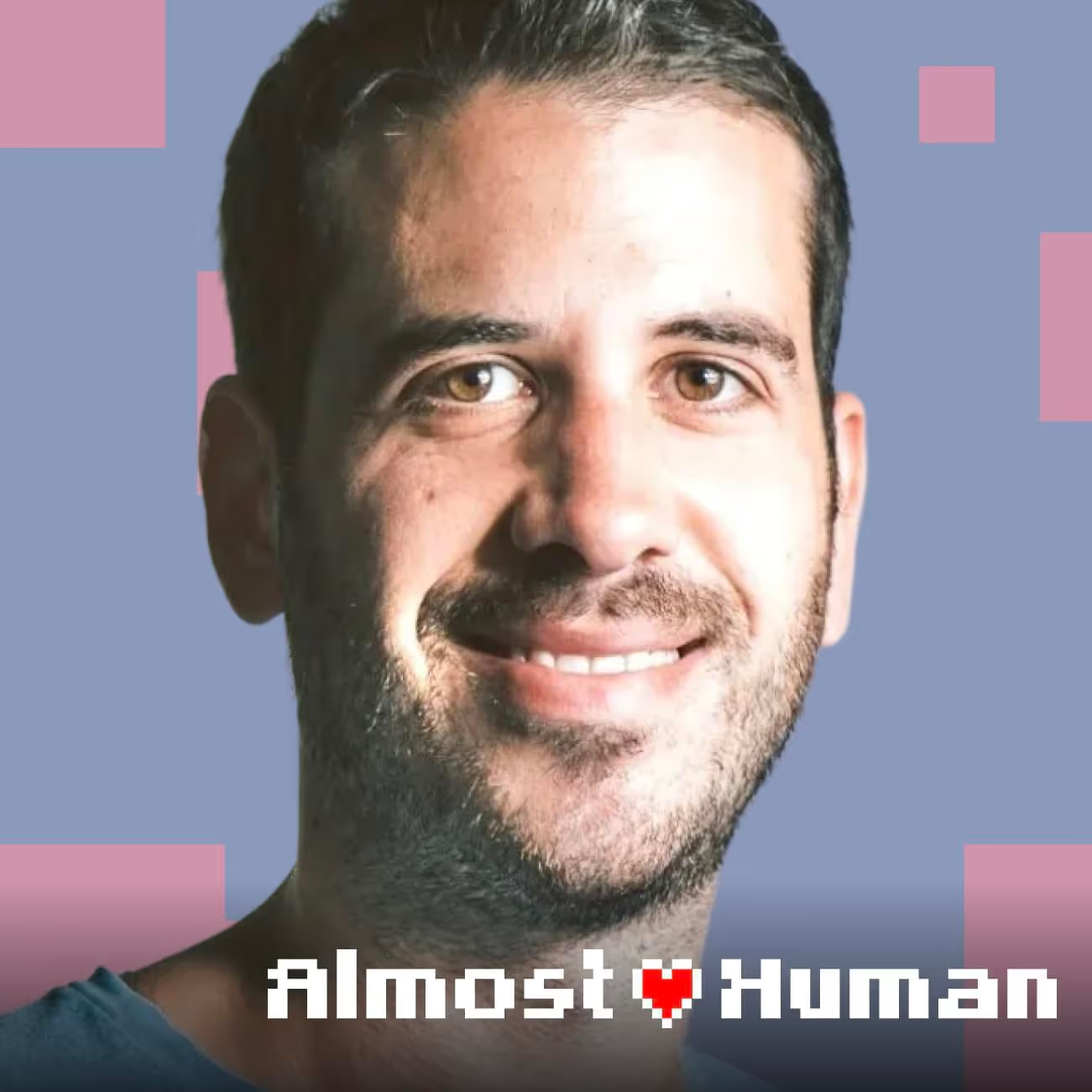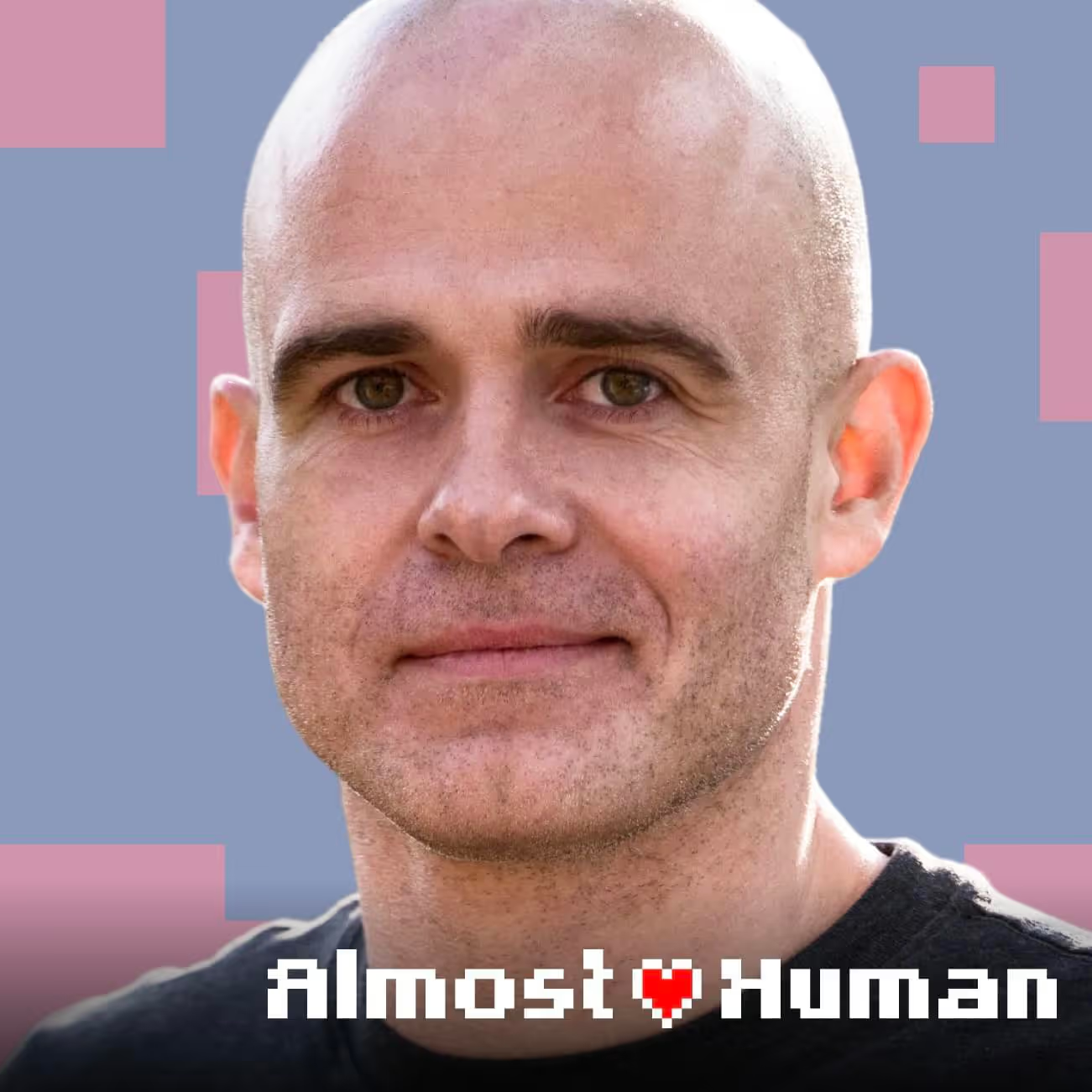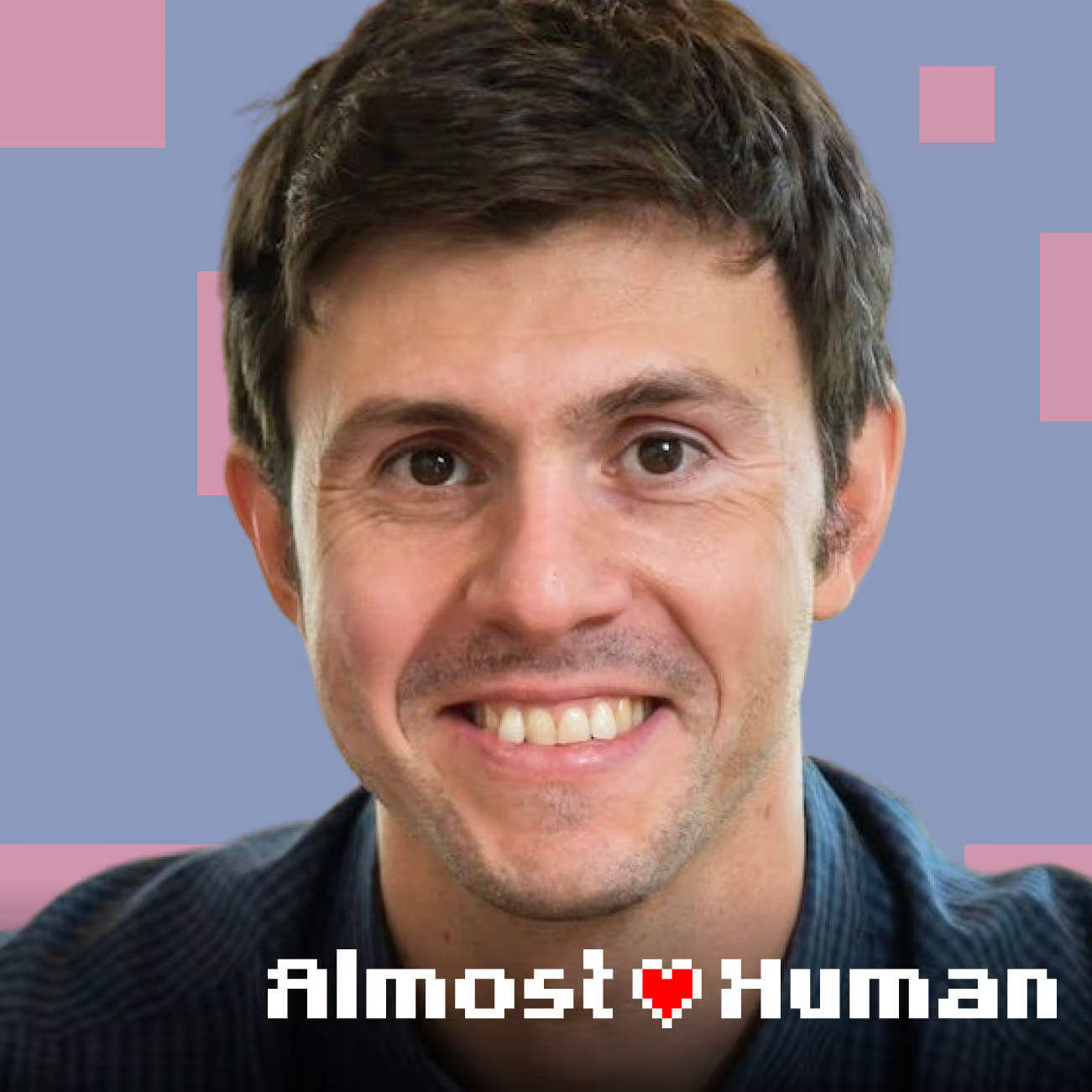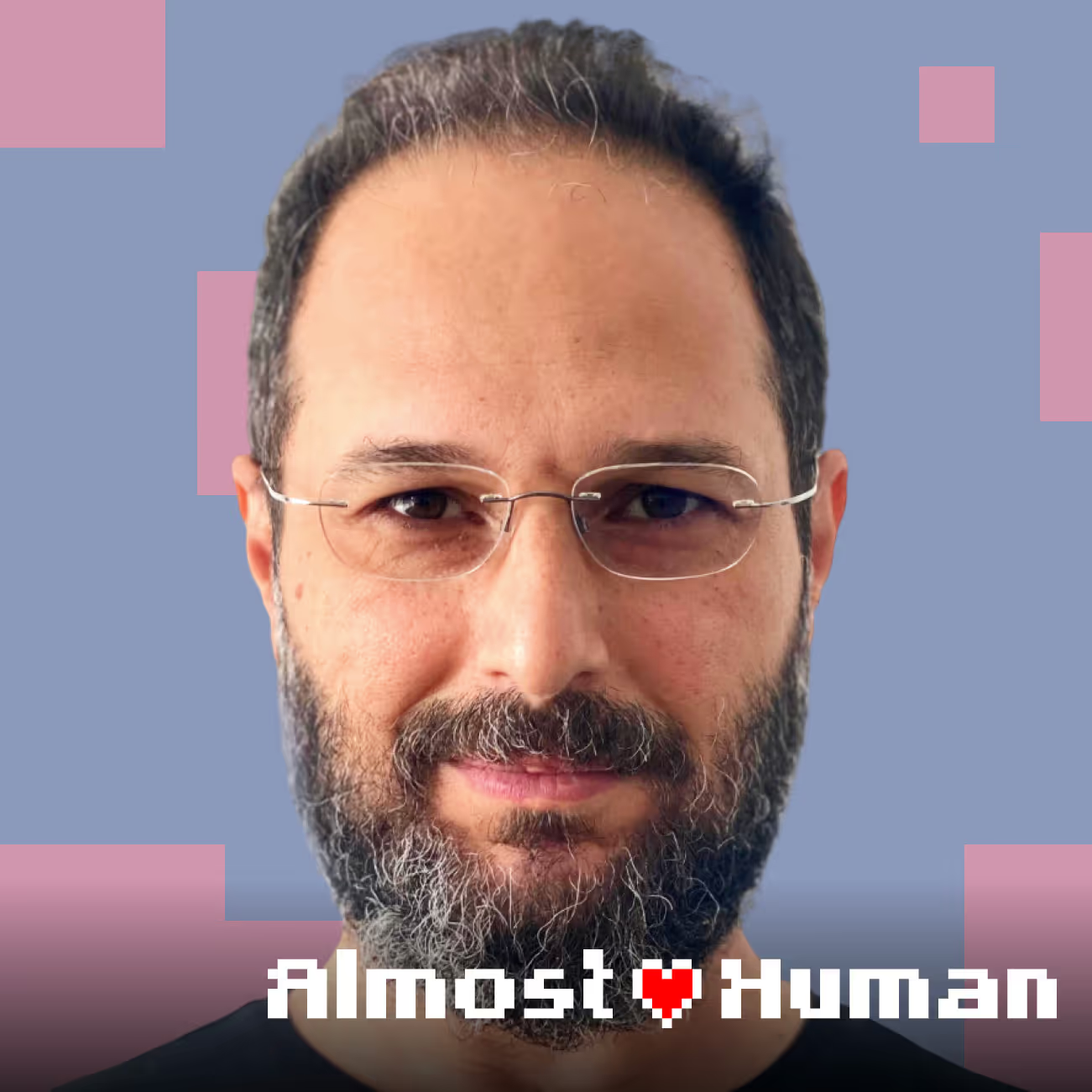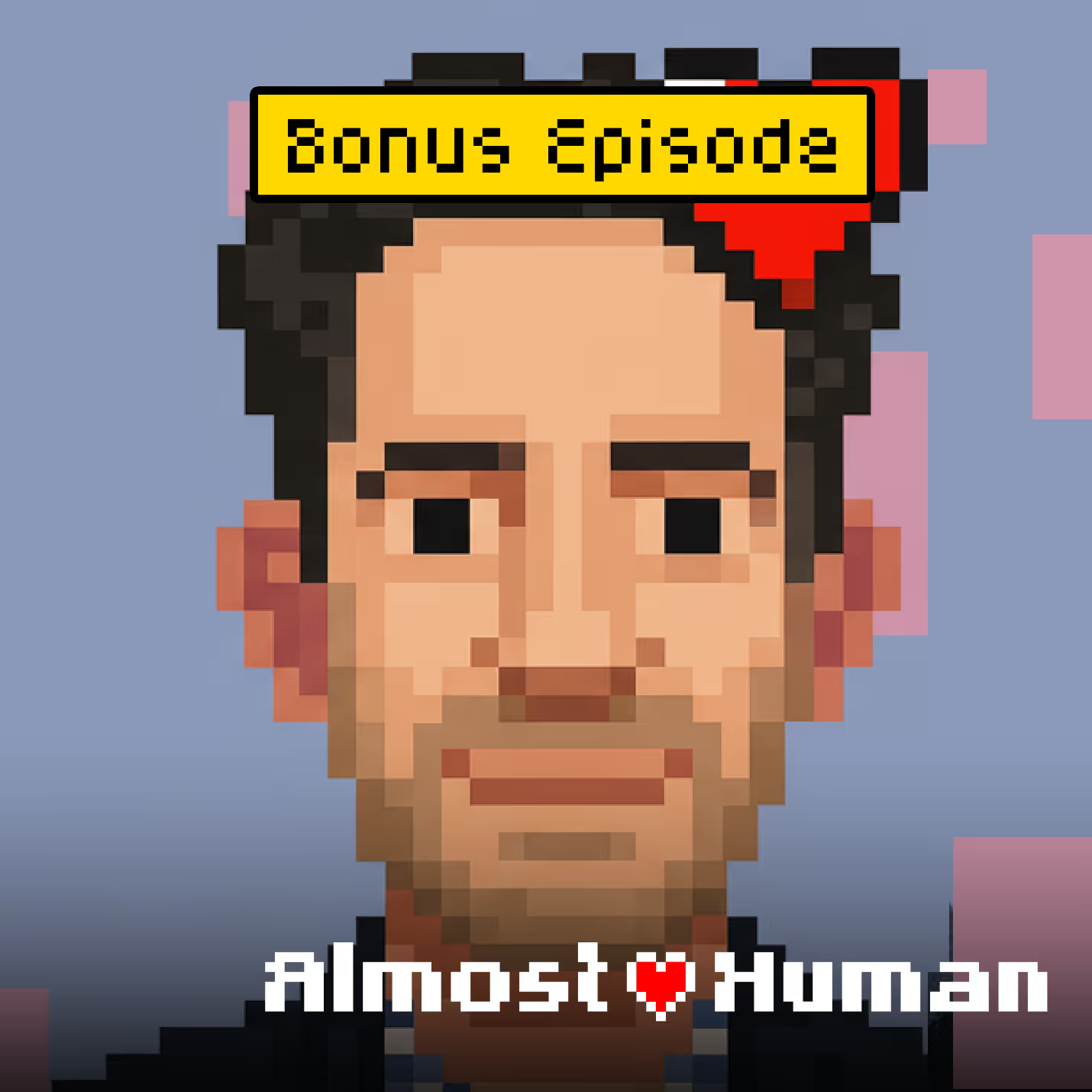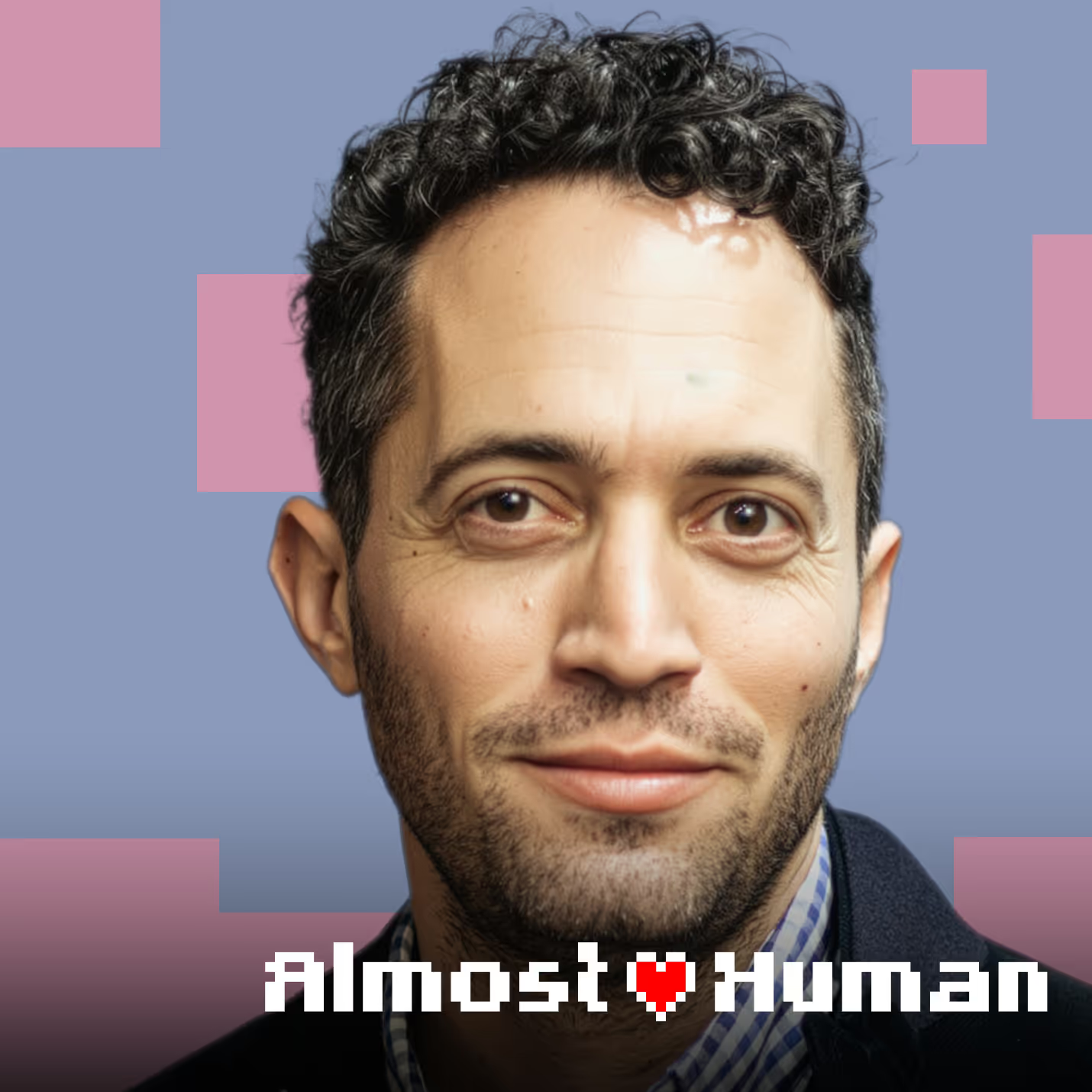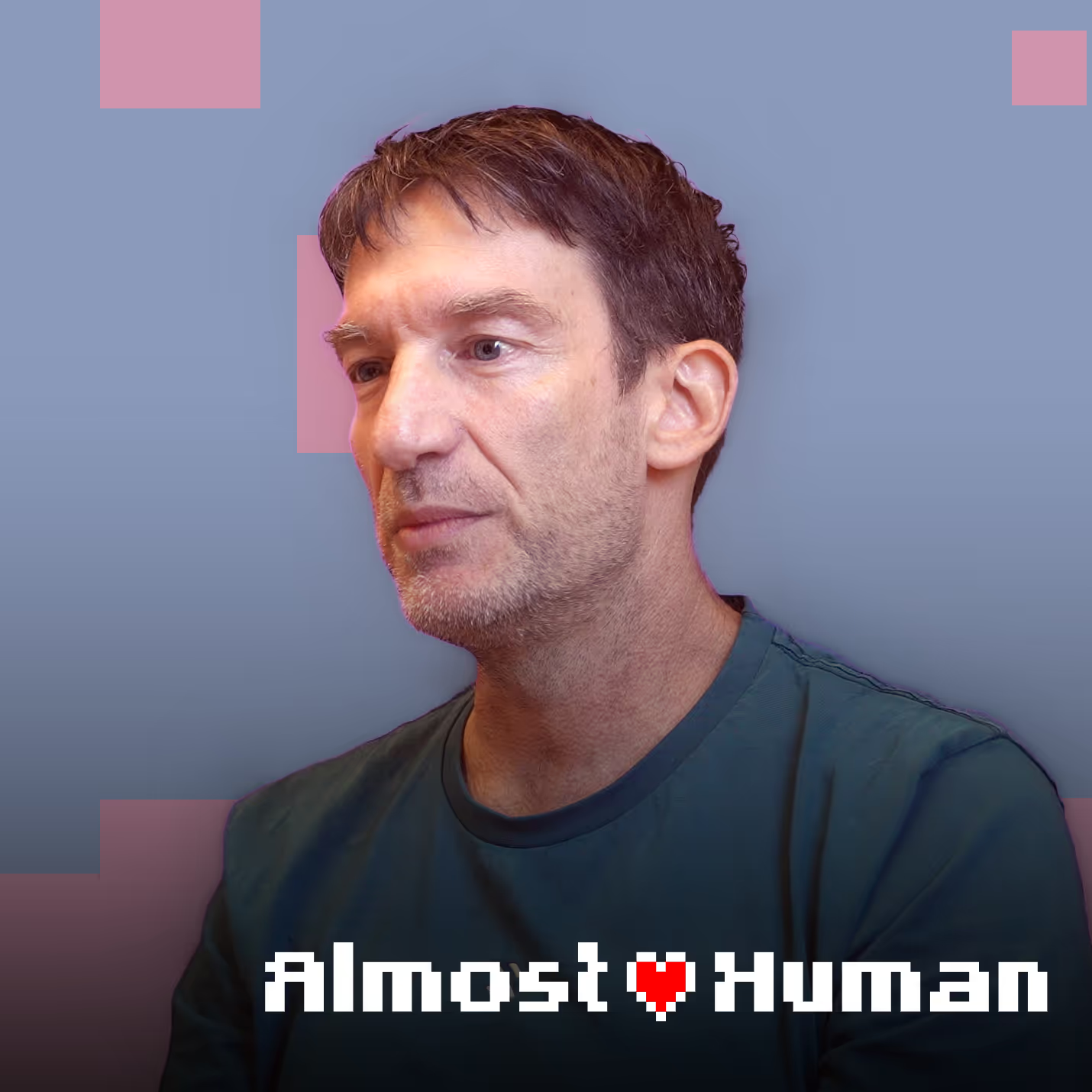Alon Arvatz



How can values create value? On this podcast, Michael Eisenberg talks with business leaders and venture capitalists to explore the values and purpose behind their businesses, the impact technology can have on humanity, and the humanity behind digitization.
Alon Arvatz



How can values create value? On this podcast, Michael Eisenberg talks with business leaders and venture capitalists to explore the values and purpose behind their businesses, the impact technology can have on humanity, and the humanity behind digitization.
Alon Arvatz
Alon Arvatz

Alon Arvatz
Alon Arvatz
[00:00] Intro
[04:40] Becoming an Entrepreneur
[08:40] Writing “The Battle for Your Computer”
[17:30] Feedback on the Book
[21:40] Future of Israeli Cyber
[25:00] Founding PointFive
[30:57] Going With Your Intuition
[33:00] Why Stop Angel Investing
[35:15] Do We Need Cyber School?
[38:45] Believing in God
[40:00] Does Financial Education Work?
[47:05] Israeli vs. American Entrepreneurs
[53:15] Advice to Young Entrepreneurs
[54:40] Crypto and Hamas
On this episode of Invested, Michael hosts Alon Arvatz, the CEO & Co-founder of PointFive.
PointFive is a leader in cloud cost management. Prior to that he co-founded IntSights, a cybersecurity and threat intelligence startup, and led it to a successful acquisition for $350M to Rapid7. He authored the book “The Battle for Your Computer” that depicts the success story of the Israeli cybersecurity industry. Alon is also involved in social impact, founding the non-profit "Kanfey Kesef" that promotes financial literacy.
Please rate this episode 5 stars wherever you stream your podcasts!
[00:00:00] Alon Arvatz:
It just drove me crazy, and I went from like the most motivated person to a person that it’s hard for him to get out of bed every morning. So at that point, I said, okay, I have to do something different. I left Rapid7 and went ahead to found PointFive.
Michael Eisenberg:
What did your wife say when you decided to do this?
Alon Arvatz:
“I don't like it, but I support you.”
[00:00:24] Michael Eisenberg:
I am thrilled to welcome to Invested Alon Arvatz. Welcome, Alon.
Alon Arvatz:
Thank you, Michael, for having me.
Michael Eisenberg:
Alon is a serial founder in the world of cyber security. And one of the things we actually haven't delved into on this podcast yet is the world of cyber. And I'm thrilled to have you, because literally, you wrote the book on cyber. Is that fair?
[00:00:43] Alon Arvatz:
Yeah, that's correct.
[00:00:44] Michael Eisenberg:
Okay. So tell us about you Alon. Instead of me introducing you, tell our audience about you.
[00:00:49] Alon Arvatz:
Sure. So first of all, today I'm the CEO and co-founder of PointFive. Actually this new startup, which we announced two weeks ago, is not in cyber security, it's actually in an infrastructure management, cloud infrastructure management.
[00:01:04] But actually most of my background is in cyber security. So I started my cyber security knowledge and experience in 8200, like many other Israelis. Although I had a not-too-traditional path–I actually studied infantry–and after hurting my ear during shooting training, I actually moved to 8200, which is a whole story for itself.
[00:01:26] Michael Eisenberg:
Well, tell us.
[00:01:29] Alon Arvatz:
Okay, I'll try to keep it very short.
[00:01:31] Michael Eisenberg:
Okay.
[00:01:32] Alon Arvatz:
I really wanted to go to infantry, to command the unit. I gave up all my assessment to the intelligence corps. And I said, okay, I want to go to commando. I did, you know, all the tests, all the assessments, and I ended up in Egoz, which is the command unit, back then it was Golani.
[00:01:49] And actually through my training, I forgot to put my earplugs one time, and I started hearing beeping. And then I also was assessed with hearing reduction. And they kicked me out of Egoz, basically. And then I was like, okay, what am I doing now? They sent me to the HR of Egoz, by the way.
Michael Eisenberg:
The commando unit.
Alon Arvatz:
Yeah, yeah, yeah. Of Egoz. And I said, “Okay, I wanna do more. I'm capable of doing more,” and I just started a whole campaign in the IDF to get out of Egoz and get to 8200. So I got a pirate interview with 8200. I convinced the commander of Egoz to sign me off, I convinced like half of the IDF, until I was moved to 8200.
[00:02:32] Michael Eisenberg:
So amazing. Then you became a cyber commando.
Alon Arvatz:
Yeah, exactly.
Michael Eisenberg:
Okay, so you were in 8200 and then you got out of 8200 eventually.
[00:02:37] Alon Arvatz:
And then I got out of it. I did one year of Yeshiva.
Michael Eisenberg:
Talmud study.
Alon Arvatz:
Yes, yes, exactly. And then I decided I wanted to be an entrepreneur, but I had no idea how you become an entrepreneur. There is no degree in university of Entrepreneurship. It doesn't exist. And I had no idea where to start, so I said, “Okay, I'll go to university.” I thought, okay, what can help me as an entrepreneur? I said, okay, law and accounting might be helpful. Big lie. Wasn't helpful whatsoever, wasn’t what I had in mind.
And I also thought to myself, okay, I also have a backup of doing something in the economy ministry, which was also something that I always wanted to do. But as I started my studies, I met a few friends who became my co-founders. The first one was Barak. We founded together my first venture, which was a nonprofit for financial literacy for teenagers.
Michael Eisenberg:
We're going to talk about that soon.
Alon Arvatz:
Yeah. And after that, I also already got experience with schools, and teaching, and building curriculums, et cetera. And then I decided to found with Guy Cyber School, which was a cybersecurity training education for teenagers. We sold that company, and then Guy and I, and Gal who served with me in 8200, founded IntSights, which was my first tech startup, basically.
Michael Eisenberg:
Which was sold…?
Alon Arvatz:
Which was sold to Rapid7 for $350 million.
Michael Eisenberg:
In 2000 and..?
Alon Arvatz:
2021. Yes. It was an amazing journey.
Michael Eisenberg:
During Covid.
Alon Arvatz:
Yes, yes. Amazing journey. We took the company from nothing. It was our first high tech experience. We had no tech experience before that. We took it to over $30 million ARR.
I'm actually a lot more proud of that, rather than the amount we sold the company. And after we sold it, we became part of Rapid7. I wrote the book about the Israeli cybersecurity industry and what makes it so successful. It's called The Battle for Your Computer.
[00:04:35] Michael Eisenberg:
Yeah, we're going to talk a lot about that.
[00:04:35] Alon Arvatz:
For sure. And then PointFive.
[00:04:39] Michael Eisenberg:
How did you know you wanted to be an entrepreneur? Like where did that even come from?
[00:04:43] Alon Arvatz:
That's a very good question, because after I sold IntSights, I started giving lectures and talks about my personal journey. And then I had to ask myself, “Okay, Alon, where does your journey start? Does it start in 8200? And I think it really started when I was like, nine or 10 years old, going to my dad's work. My dad's always been working in the tech industry. He’s been the CFO of multiple tech companies. And I think the time when I went with my dad to his office and was amazed by the atmosphere, by the office, and how it looks like, et cetera, I think that was like my first point in time when I felt, okay, I want to do tech and maybe want to do entrepreneurship.
But besides that, I grew up in Israel. Entrepreneurship is many people's dream. This is what you see in the news. This is what is perceived as successful in our society. So I guess it all accumulated into very strong motivation to become an entrepreneur myself.
[00:05:46] Michael Eisenberg:
You know, now that you said that, you had mentioned kind of two minutes ago that you thought of going maybe into the finance ministry, the economics ministry, to do economic work or policy work. And now in the same breath, you said that part of what's regarded as successful, or let's call it models or people that we model behavior after now, is entrepreneurship.
[00:06:09] And I think that started by the way, roughly in the mid nineties, particularly around the ICQ and Mirabilis moment here, with these four shaggy-haired guys sold their company to AOL for $400 million. And in the earlier part of the State of Israel, people modeled themselves after army generals. Does it ever worry you that the most talented people today end up not in government, and not in the military, and not in places that really matter?
[00:06:33] Because what you said as a kid, I got inspired by these models of success who are entrepreneurs, and that's the kind of thing people model after.
[00:06:42] Alon Arvatz:
Right. And I definitely worry because of that, because the government needs very good people. And the bottom line is that many people go to tech, and many talented people go to tech.
[00:06:54] So it's definitely a concern. I think that the reason I wanted to go to government, or that was something that I said, “Okay, this is something I want to do,” that's because of the social impact that it has. So economy has always been a hobby of mine, since high school I've been reading about economy, like macroeconomics, but the reason I was considering government is because of the social impact I want to do.
[00:07:21] And the education I got from home, in my yeshiva, in my high school, of doing something that will be very beneficial and impactful to the State of Israel. So I think that. But let's put it this way, I don't think that the government will be able to give you the same financial benefits as the tech industry.
Michael Eisenberg:
I know, but so what? But this matters. Like we're in a country, and the world is like in a state of war ,and Israel is in a state of war, and we've got challenges and–I don't say this to be critical, but if you already raised it, which is, you sold a company, and instead of going to government, which you thought was super important and where successful people need to go, you went off and did a second company.
[00:07:57] Alon Arvatz:
That's true. That's true. But I can tell you that my definitely long-term plan is to do something in the public sector.
[00:08:03] Michael Eisenberg:
How long is long term? Because we need people in the public sector.
[00:08:05] Alon Arvatz:
I don't know. Right now I'm really into PointFive. So I'm going to be at PointFive for, you know, as long as it needs me. But my plan is like, I don't know, the next thing or the next-next thing to do is something in the public sector.
[00:08:20]
[00:08:20] Michael Eisenberg:
The next, next, next, next thing seems like a long time for talented people like you.
[00:08:23] Alon Arvatz:
Yeah. First of all, I'm pretty young, right? I still have many years ahead of me.
Michael Eisenberg:
How old are you?
Alon Arvatz:
I'm 36.
[00:08:31] Michael Eisenberg:
That's the perfect time. That's even older than the Founding Fathers of the United States.
[00:08:36] Alon Arvatz: Yeah, yeah, yeah. So relatively young.
[00:08:40] Michael Eisenberg:
So I want to actually first dig into your book. So you sold IntSights, and then you sit down and write a book. Why'd you write the book?
[00:08:52] Alon Arvatz:
Yeah, so first of all, I always had a dream to write a book. I love books.
[00:08:57] Michael Eisenberg:
You had a dream to be an entrepreneur since you're nine, how old were you when you had a dream to write a book?
[00:09:02] Alon Arvatz:
I don't know, but I can tell that since high school, I started reading nonfiction, and there were a few books that really shaped my philosophy, my perception of life, the way I look at the state, the way I look at policy, the way I look at philosophy. And I felt like books, especially nonfiction, by the way, have tons of impact.
[00:09:24] Michael Eisenberg:
Which books are those that had a big impact on you?
[00:09:27] Alon Arvatz:
So the one that I always highlight is Basic Economics by Thomas Sowell, which is an amazing, economist, a conservative economist. And he really like, you know, flipped my entire perception on economy. Like he made me, I would say capitalist in many ways.
[00:09:48] And I was just reading through the book and it was, as I was flipping page after page, I realized that it changes everything that I think about economic policy. And I was like, wow, this person changed my life in a way, the way I look at reality.
[00:10:04] Michael Eisenberg:
Mm hmm.
[00:10:05] Alon Arvatz:
And when I realized the impact that books have, I started reading more books, and at some point I wanted to write a book myself.
[00:10:11] Michael Eisenberg:
Amazing. So tell us about the Battle for The Computer, for Your Computer.
[00:10:15] Alon Arvatz:
So I can tell you that when I sold IntSights and as I was reflecting at my journey, I realized that a lot of my success is actually thanks not only to my personal talent or efforts I put into IntSights, but actually a lot of that was thanks to the ecosystem that was built in Israel.
So the investors that have a lot of experience with building cybersecurity companies and guided me through my personal journey, the entrepreneurs that have done it before me and can give me guidance, and the reputation that was actually built through the years. And when I, as an entrepreneur came and said, “Okay, I'm from Israel.”
So people said, “Oh, you're from Israel. You already get a few points ahead.” So that's a reputation that was built through many years, and I got the benefit of it, right? I could tell you when I started IntSights, which was actually pretty funny–I didn't know if people like Israel or they don't like Israel. So I always try to avoid mentioning that I’m from Israel.
And I also have my yarmulka on my head. So I always try to stand in the Zoom in a way that would, you know, it won't stick out too much. And at some point I realized that actually being from Israel is an advantage.
Michael Eisenberg:
It's a feature.
Alon Arvatz:
It's a feature. Exactly. So when I started my pitch, it always started with “I'm from 8200. I'm from Israel.” That's how I started. Like that was the baseline of the conversation, because the reputation that was built was really helpful. So after I realized that I said, “Okay, there is an amazing ecosystem that was built, right, through the years. I got the benefit, to benefit from this ecosystem.”
[00:11:48] It's time, one, to tell the story to the world, how it happened. And from my perspective, it was also a way to show gratitude to all the entrepreneurs that built this, this industry for me. And I got to ride on their shoulders and build IntSights.
[00:12:06] Michael Eisenberg:
Who are the two most important figures in the book in your mind, the builders of the cyber industry of Israel?
[00:12:14] Alon Arvatz:
Okay, so the first one is easy. That's Gil Shwed. No doubt about that. CEO of Checkpoint, biggest cybersecurity company in Israel. Okay. I think that Nir Zuk deserves a special mention. Palo Alto Networks is not really an Israeli company but it has a very big R&D center in Israel.
It makes a lot of acquisitions here in Israel, so an honorable mention. And from the investor side, it's definitely Gili Raanan. Okay, no doubt about that.
Michael Eisenberg:
He was your investor also, right?
Alon Arvatz:
No, no.
Michael Eisenberg:
No, he was not?
Alon Arvatz:
No.
Michael Eisenberg:
Okay.
Alon Arvatz:
Actually, it's a funny story. So when we founded IntSights, we got a term sheet from Gili, back then Sequoia, and from Glilot, from Kobi and Arik.
And we actually decided to go with Glilot, with Kobi and Arik, and they were amazing partners for us. I don’t know how it would've been with Gili, but they were amazing partners for us, and we were really happy that they were the ones with us and guided us through the process. I have to say though, about the entrepreneur that I felt most related to, is Mickey Boodaei.
Michael Eisenberg:
Mickey Boodaei is one of the founders of Imperva, Imperva with Shlomo Kramer.
Alon Arvatz:
Right, and then Trusteer, and now Transmit Security. I was captured by his humbleness, and actually the book ends with a quote by Mickey. And it's a fascinating quote. Because I asked every entrepreneur I interviewed to the book, “What is the biggest risk or biggest threat to the Israeli cyber security industry?”
And everyone said, “Lack of talent, lack of people that can actually build products.” And Mickey was the only one that gave me a different answer. And he said, “The biggest threat is hubris.” And he was like, “We learned nothing from the Yom Kippur war, where we thought we were so powerful and no one would dare fight us. And until today, because we're so successful, we feel like, ‘Hey, we're Israel, we’ll continue to lead the cyber security industry worldwide.’ And that's not true. If we won't be humble enough to listen to the industry, to listen to our customers, we'll lose our leadership. And it's just amazing how relevant it is to anything that happened to us as a nation in the last year, and since October 7th in specific. Because the history just repeats itself, and it repeats itself with our defense and security interests, and it can repeat itself with our cybersecurity industry.
[00:14:53] Michael Eisenberg:
Would it be fair to say–and I really appreciate Mickey's point–would it be fair to say that conflict is healthy for this industry?
[00:15:01] Alon Arvatz:
Definitely. Definitely.
[00:15:02] Michael Eisenberg:
It's actually imperative for the industry
[00:15:04] Alon Arvatz:
For sure Actually, I write about in the book–the whole reason that Israel became the leader to begin with is because we had challenges that, for example, American entrepreneurs didn't have to face. The fact that we don't have a market here, that the market here is very, very small, and that we had to adapt ourselves to the American market, that was a challenge that allowed us to build very scalable and agile products, products that are very easy to replicate, to sell, even for partners that live on the other side of the ocean.
And that's what allowed us to build amazing products that were also very simple. So a lot of the success of the Israeli cybersecurity industry is thanks to the challenges and the conflict we had in the beginning, and until today.
[00:15:50] Michael Eisenberg:
How important is it that, unlike in every other technology ecosystem where somebody goes to college and then at some point decides to get into cyber, here you get into cyber you're [00:16:00] 18, 19, 20?
[00:16:00] So you've got all these young guys together for five or six years and hacking away, they're probably more daring and less kind of scared when they're 18, 19, 20. So they'll do anything, and maybe the moral sense is less well developed as well. How important is that to the innovation in the Israeli cyber ecosystem?
[00:16:18] Alon Arvatz:
Yeah, yeah, yeah. No, it is very, very important. Actually, the technological unit in the IDF has a huge impact. I always say that, like, if you think of–I went to 8200, okay, I only testify by 8200. 8200 is the place where you wear a military uniform, you have a dining room just right at any place in the army, right? With the trays and so on. The cafeteria. But when you sit down with your friends, you can talk about what startup you will found when you will finish your service, and what is the latest technology that was just announced or published. Like these are, this is the conversation that people are having over lunch in the army.
So that is a crazy ecosystem to encourage people to go on their personal entrepreneurial journey. By the way, I'm curious, like, what is your perspective as an investor? About investing in people that came out straight from the army, versus people that went through college and had some experience in the private sector and just then got to become entrepreneurs.
[00:17:20] Michael Eisenberg:
I think it really depends on the area that they're focused on. I think in cyber you can kind of get away with it coming straight out of the army, and in some parts of data infrastructure you can, but for the most part, having someone a little more developed, particularly here where you need people to understand markets that are not Israel. This is a small country. I think it's important to have people slightly more mature.
What was the feedback on your book or the pushback?
[00:17:48] Alon Arvatz:
So first of all, the feedbacks were great.
[00:17:51] Michael Eisenberg:
I never met an author who didn't say the first answer, “The feedback on my book was great.” And I've written a lot of books, so.
[00:17:56] Alon Arvatz:
Yeah, so I'll try to be more specific.
Michael Eisenberg:
Yeah, okay.
Alon Arvatz:
Okay. I'll try to be more specific. I also got a lot of good feedbacks about the writing. Which was very nice, because it’s the first book I'm writing, like that it's interesting, it's compelling, et cetera. I think the biggest compliment I got was from my wife's grandpa, who said, “This is the first time I understood what this whole high tech is all about.”
[00:18:21] Michael Eisenberg:
Yeah.
[00:18:21] Alon Arvatz:
Right.
[00:18:22] Michael Eisenberg:
I thought you were going to say, “Okay, after the book, I'm finally happy that you married my granddaughter.”
[00:18:29] Alon Arvatz:
He said something pretty similar, and more funny, by the way. He said, “Now I know that you can make a living out of tech.”
[00:18:39] Michael Eisenberg:
I have a similar background story to my wife, that on my 15th anniversary, my wife's grandmother called up and said, “Mikey, happy anniversary. You know, you're not as bad as we thought you were.”
[00:18:53] Alon Arvatz:
Yeah. So similar comment. I can tell you that a lot of people told me, “Alon, the book is missing your personal story.” So, I put a lot of focus on the industry as a whole, and I guess not too much on my personal story. And people told me, “Alon, we want to read this book to also learn about your personal story. And that's very much lacking.”
[00:19:15] Michael Eisenberg:
You know, interesting tidbit, when Jacob Helberg's book came out–and he's been a guest on the podcast before–I called him up and I said, “You know, it's wild to me how much of your personal story you told at the beginning, because I also, in one of my books, was pushed by my editor to tell more of my personal story, and I didn't want to.”
He said, “Hey, you know, the same thing happened to me.” And he said, “It turns out that you come to write a book about a topic, but the editors know that people want to read your personal story first to know who they're connecting with.” Which I found stunning. I got pushed to do the same thing.
[00:19:51] Alon Arvatz:
Right. And also interesting comment, my book is now being translated to Chinese.
Michael Eisenberg:
Uh oh.
Alon Arvatz:
And yeah, it's going to be promoted in the Chinese market.
Michael Eisenberg:
Are there any secrets in there?
[00:20:04] Alon Arvatz:
No, not really. Not really. It also went through a censorship. They also cut, by the way, a lot of it. Like big areas of my book were cut off in censorship.
[00:20:14] Michael Eisenberg:
Oh, in censorship?
[00:20:15] Alon Arvatz:
In censorship.
[00:20:16] Michael Eisenberg:
Okay yes. There's an army censor in Israel that, you know, limits what you can say about things that are secret.
[00:20:21] Alon Arvatz:
Exactly. So a lot of it was cut, so it's clear. But funny story, they told me that I have to write a special introduction to the Chinese market to explain the Israeli culture. Because they said that for the Chinese reader, It would just look like fiction. It will be unreliable. The story is being told there about Israeli entrepreneurs. So you have to explain to them the Israeli culture. Like the fact that Shalev Hulio was standing in line in the coffee shop, and hearing someone talking about what he did in the army, and he was like, “Wait, wait, wait, what are you talking about? Okay, I need you to connect me to a person that has expertise in phone hacking,” that for them would sound unreliable. So you have to do an introduction to explain the culture. That was fascinating.
[00:21:08] Michael Eisenberg:
You also should tell them that people in Israel don't wait in line.
[00:21:11] Alon Arvatz:
Exactly.
[00:21:13] Michael Eisenberg:
Really. So was there any negative backlash to your book?
[00:21:17] Alon Arvatz:
Not really. I think there were a couple of people that felt they weren't mentioned enough or didn't get enough credit, which always happens when you try to cover a certain topic, but beyond that, mainly positive feedback.
[00:21:31] Michael Eisenberg:
So if I had to ask you, where's the Israeli cyber industry going, and tech going, what would you tell me?
[00:21:39] Alon Arvatz:
So I'm personally very optimistic about Israeli cyber security.
Michael Eisenberg:
Still bullish.
Alon Arvatz:
Still very bullish.
[00:21:45] Michael Eisenberg:
Yeah.
[00:21:46] Alon Arvatz:
Yeah. Honestly, I felt very uncomfortable with some of the articles in the Israeli media lately–
[00:21:55] Michael Eisenberg:
Yeah.
[00:21:56] Alon Arvatz:
–about the tech industry, where, like, the reader might get the perception that investors are pulling their money out of Israel.
[00:22:06] Michael Eisenberg:
Yeah. Yesterday, by the way, data came out that showed that all these same journalists who talked about a downturn investment were all wrong. Yesterday, the data came out.
[00:22:16] Michael Eisenberg:
I've been saying that they’re wrong the whole time. There has been no downturn.
[00:22:19] Alon Arvatz:
Listen, I was reading it and I was like, am I crazy? Because I experienced the exact opposite.
[00:22:25] Michael Eisenberg:
Yeah.
[00:22:25] Alon Arvatz:
Am I crazy? And I was like, went around and talked to the top investors in the world that have people here in Israel. Like top 10 investors. And they all told me they did investments since October 7th. Two of them appointed partners in Israel, which means they're doing strategic investment in Israel to be here for the long term.
VCs that never did investments here started doing investments last year. So my experience is exactly the opposite. I think, I'm very optimistic, very bullish. I think we should expand beyond cybersecurity. I think we're too much focused on cybersecurity.
[00:23:02] Michael Eisenberg:
Is it too crowded in cybersecurity now here?
[00:23:06] Alon Arvatz:
I think it is. Yeah. I think it is. Okay.
[00:23:09] Michael Eisenberg:
That's why I don't invest there, by the way.
Alon Arvatz:
Oh, yeah?
Michael Eisenberg:
Yeah. I can't compete in these crowded businesses, where everyone’s looking at them…I’m not capable enough.
[00:23:15] Alon Arvatz:
Yeah I think it's a bit inflated as well.
[00:23:17] Michael Eisenberg:
Me too.
[00:23:18] Alon Arvatz:
And I also think that like for our country, it's very important to go beyond cyber security. That's part of the reason that my new startup is not in cyber security, but in cloud infrastructure management.
[00:23:30] Michael Eisenberg:
Before we go to your new startup, what are the kind of, top two or three cyber companies in Israel that are kind of on your radar now that you say, okay, those are the future Checkpoints, those are the future Wizzes, or whatever it is?
Alon Arvatz:
Wow, you mean like early stage, or…?
Michael Eisenberg:
I'm not gonna, you tell me, the big three. The big three by Alon, go ahead. The guy who wrote the book on Israeli cyber has given us his big three. One.
[00:23:54] Alon Arvatz:
Okay, so I personally really believe in Mickey, and in Transmit Security, and what they're doing.
[00:23:59] Michael Eisenberg:
Whatever Mickey Boodaei does, number one. Next. Number two.
[00:24:04] Alon Arvatz:
Number two, I think that Island is doing something really great.
Michael Eisenberg:
What do they do?
Alon Arvatz:
Okay, they're doing browser security. But what I like about them is that they have a vision to go beyond browser security.
[00:24:16] Michael Eisenberg:
They just raised a pile of money, right?
Alon Arvatz:
[00:24:18] What?
Michael Eisenberg:
They just raised a lot of money.
[00:24:20] Alon Arvatz:
Yes, yes, yes.
Michael Eisenberg:
Who led that round?
[00:24:25] Alon Arvatz:
I don't, no, I don't remember. I don't know.
[00:24:27] Michael Eisenberg:
Hopefully when they edit the podcast, they'll put something on the bottom, some subtitle that says who led the round. Go ahead. Number three is?
[00:24:34] Alon Arvatz:
Yeah. Number three. Wow. That's a good question.
[00:24:37] Michael Eisenberg:
Mickey Boodaei and Island stood out quickly, but number three is tough. Who's number three?
[00:24:40] Alon Arvatz:
Number three is tough. Number three is tough. That's a good question. I don't know. I didn't think about it. I didn't think about it. I'll get back to you maybe by the end of the podcast. I'll get you the number three.
[00:24:54] Michael Eisenberg:
Okay. So tell us about PointFive.
[00:24:57] Alon Arvatz:
Okay. So actually PointFive is the born child of our personal experience at Rapid7. So at Rapid7 we became part of a very big engineering organization of thousands of engineers, and also part of their overall efforts of cloud cost optimization.
And there we really faced all the challenges around actually getting the engineers to take action. Because today engineers aren't really involved in the whole process of optimizing the infrastructure and reducing cloud costs. Today, cloud infrastructure is the number two cost driver for organizations after people, after human capital. And it's a big, big issue to all organizations. So we decided to chase after cloud cost optimization, but actually build a solution for engineers. So instead of going after the finance people or people that have more finance background, go after engineers or FinOps that are leaning more toward tech, that are part of the engineer organization, and actually build a solution that will motivate and give engineers the tools they need to actually drive action.
This is how we started. And actually over time we realized that the infrastructure we built can serve other aspects of cloud infrastructure management for engineers. So actually can facilitate different types of infrastructure management, and DevOps use cases that are not pure cost. So we started building our cost suite, and now we're slowly expanding beyond cost to also help organizations drive action across the general organization to manage anything related to infrastructure.
[00:26:37] Michael Eisenberg:
Do you love this idea?
Very much.
Michael Eisenberg:
You know how I know you love this idea?
Alon Arvatz:
How?
Michael Eisenberg:
Alon Arvatz:
Cause Tamar Yehoshua told me to ask you, why did you leave Rapid7 early before you vested to go do this thing?
[00:26:49] Alon Arvatz:
Exactly. I actually, we had two and a half years of hold back period.
[00:26:56] Michael Eisenberg:
Yeah.
[00:26:57] Alon Arvatz:
And I left after one year, just because I got really excited, we got really excited about the space, about the idea. And I really felt like I have to get back to entrepreneurship.
[00:27:06] Michael Eisenberg:
What, where did that feeling come from? You left real money on the table.
[00:27:09] Alon Arvatz:
I left a lot of money on the table. So first of all, to be honest, I felt like I have like enough money for what I want to do in life. So like getting more money, which is a lot of money, but more money won't change my life. So that was a certain baseline, but just being, you know, part of a big corporate, which everything is so slow, it's a lot of bureaucracy, and you're not making the decisions, really lowered my energy. And people that are not entrepreneurs, like for them, it's very hard to understand. Because I basically, after the acquisitions, continued to do the same thing, work with the same product. I had more or less the same role of leading the product, and product management for the same product. Like more or less the same.
But like the fact that you're not making the decisions. It's not yours. It's so slow. You're dependent on someone in Boston to approve any little thing you want to do–that just drove me crazy, and I went from like the most motivated person, to a person that it’s hard for him to get out of bed every morning.
So at that point, I said, okay, I have to do something different. I left Rapid7 and went ahead to found PointFive.
Michael Eisenberg:
What did your wife say when you decided to do this?
Alon Arvatz:
“I don't like it, but I support you.”
[00:28:36] Michael Eisenberg:
She doesn't like it. Why? Because it's all encompassing to be a founder? Because you left the money on the table?
[00:28:41] Alon Arvatz:
No, no, no, no, no. So my wife, it's not about the money.
[00:28:45] Michael Eisenberg:
That was after her grandfather said that he now knows you can make a living, and then he left it behind.
[00:28:50] Alon Arvatz:
Exactly. No, it just that, you know, life in a corporate, they're a lot more easygoing, and I had more, I wouldn't say time, because I was still working full time. I think it's more attention maybe.
[00:29:04] Michael Eisenberg:
Yeah.
[00:29:05] Alon Arvatz:
Okay. It's very hard to balance entrepreneurship and family. I think I'm making improvement over time in doing the right balance.
[00:29:13] Michael Eisenberg:
Does your wife think you're making improvement over time, or do you think so?
[00:29:16] Alon Arvatz:
I think, like, I don't think she's satisfied with where I'm at, like, she still believes I can do more improvement. But I definitely made improvements since my early entrepreneurship years, where I left her in certain situations. She always liked to tell a story where, on our way–and actually I'm pretty embarrassed about telling this story retrospectively, but as a young entrepreneur, that's what I did, so, yeah–actually, on our way to the hospital, like, when she was feeling like, how do you call it? Like, the pains before giving birth.
Michael Eisenberg:
Contractions.
Alon Arvatz:
Contractions. I asked her if we can go through a certain place. I don't remember if it was like to give a lesson in Cyber School, or to pick up something for Cyber School, okay, on our way to hospital. So then I'm very embarrassed to tell that.
Michael Eisenberg:
For your first child?
Alon Arvatz:
For my first child. Yeah. Yeah. So, but that's what happened. That's the reality.
Michael Eisenberg:
And you stopped?
Alon Arvatz:
No, I didn't.
Michael Eisenberg:
You did ask her.
Alon Arvatz:
I did ask her if it makes sense.
[00:30:26] Michael Eisenberg:
And you're still married.
Alon Arvatz:
I told you, I'm making improvements.
Michael Eisenberg:
And there have been more kids since. I was sitting here thinking, you know, at the beginning of the podcast, you talked about the fact that you had some hearing loss from your time in the army because you put the earplugs in. I'm thinking that that might serve you well.
[00:30:41] Alon Arvatz:
It did. It did. Back then, it felt like the biggest disaster that ever happened, and ever will happen to me. Yeah. That's how it felt.
[00:30:50] Michael Eisenberg:
Yeah. And now it's helped your marriage, because you don't hear when your wife’s yelling at you.
[00:30:53] Alon Arvatz: Exactly. Exactly.
[00:30:57] Michael Eisenberg:
So, David Politis of Better Cloud, he said, I should ask you this. He thinks you're being very deliberate in your approach to building PointFive, and you're more calculated than he has seen in many other places. And he wants to know, ‘where does that come from? Is it because of your previous founding experience? You're trying to do it a different way? Is this just how you operate? Since you're a super deliberate guy.’ That felt so un-Israeli to me, I didn't know how to relate.
[00:31:28] Alon Arvatz:
Wow, that's an interesting insight. I think that I'm a pretty deliberate person.
[00:31:35] Michael Eisenberg:
Yeah.
[00:31:37] Alon Arvatz:
That's how I grew up in many ways. And I would even say that I'm trying to coach myself to be less deliberate.
Michael Eisenberg:
Nice.
Alon Arvatz:
Because I feel that, and that's very interesting, because I feel that if you take my co-founder Guy Nitsan, which I built Cyber School with him, and IntSights, is the exact opposite. He likes to go with his intuition. He makes decisions on the spot, not that calculated in many ways. Amazing entrepreneur, by the way. And I really, after working with him for a while, I should learn the advantage of being more or less deliberate, and working more with your intuitions and making decisions on the spot.
And actually, since then, actually over time, I tried to learn from him as we're working together. And I'm trying to coach myself to be a bit less deliberate. So I can never be a different person. I'll always be this calculated, deliberate person that wants to do things in a very focused way and doing things right.
But I'm actually trying to balance it with fast decision making and going more with my intuitions, when I realized that like doing the calculations won’t get me that far.
[00:32:52] Michael Eisenberg:
So you and I are co invested in Dream, Shalev Hulio's company you mentioned earlier. Him from the line of overhearing the people who hack telephones, as you covered in your book. How is it to be an angel investor in cyber companies and why do you do it?
[00:33:06] Alon Arvatz:
So first of all, just so you know, I stopped investing in startups.
Michael Eisenberg:
You stopped?
Alon Arvatz:
I stopped.
Michael Eisenberg:
Why is that?
Alon Arvatz:
I stopped. So you have to ask yourself why to invest in startups. One reason is to make money. And as I told you in the beginning, I don't feel like I need to make more money. And I wouldn’t definitely want to spend or invest a lot of time in making more money. That's not how I operate. So that's a very basic baseline. The other reason I wanted to do that is to learn, about new technologies, about new trends. Investing really opens your mind to what happens out there.
[00:33:47] But I think that I just realized that before I want to do an investment, maybe because I'm a calculated, deliberate guy, it just takes me a lot of time to do that. Time that now as an entrepreneur, I don't have, so basically at some point I said, “Okay, I don't have the time. I don't really need the money.”
So I just stopped doing it. I feel sorry that I don't support early stage entrepreneurs that maybe need my support, need me to be there to support them. That's the drawback of not doing that. But still, I don't feel like I really have the capacity to do it the way I wanna do it as an investor.
And also to be frank, investing is a profession. It's an expertise. Like, I feel you have to really invest time, and to learn how to do it right, if you actually want to invest. Specifically Shalev, it was very easy. I was told that Shalev is building a company. I said, “I'm in.” And the reason is that after interviewing multiple entrepreneurs here for my book, I just felt like Shalev is one of the best entrepreneurs today in Israel.
Like, he's not the typical entrepreneur. He's not the one that went to 8200. He's not the tech geek. But he's so, I don't know, courageous. There's no fear. If you want to do something, you'll just go ahead and do it. And for me, it's really inspiration from that perspective.
Michael Eisenberg:
Yeah. I agree.
Alon Arvatz:
So when I heard that he's doing something, I knew that I'm going to put my money there because I'm not sure what it is, but it's going to be good.
[00:35:31] Michael Eisenberg:
Yeah. You didn't have to think that much about it.
Alon Arvatz:
Exactly.
Michael Eisenberg:
So I actually want to ask you about Cyber School. So this is really your first entrepreneurial venture. Why did you set up something called Cyber School? Like there is 8200, right, there are other units in the military. What was the purpose of Cyber School? Like why'd you have to get kids in high school before they go to the army?
[00:35:57] Alon Arvatz:
Yeah. So it actually came from, I would say like, my, social impact point of view.
[00:36:10] Michael Eisenberg:
But it was a business, right?
[00:36:11] Alon Arvatz:
It was a business. Yeah. It was a business. So my, actually my first venture was a nonprofit for financial literacy.
Michael Eisenberg:
I'm coming to that in a second. But I want to talk about cyber school specifically.
Alon Arvatz:
But cyber school specifically, first of all, I wanted to build like, like a business. But I felt there is also very big importance in getting kids into cybersecurity. Sometimes kids that don't have this opportunity from home. So getting into these schools, and get people exposed or kids exposed. And I'm talking about kids that not everyone had like me a dad that worked in the high tech industry since he remembers himself. So it was about giving opportunity and actually strengthening Israel.
[00:36:54] Michael Eisenberg:
Yeah, but most people think of doing something like that, like even 8200 has this project called Magshimim, where they go into high schools and train kids. This is a for-profit business. So people had to pay money. Parents paid money to get their kid into Alon Arvatz's Cyber School. It's probably what the kid could get prepared or whatever it is. It's like, you know, for 8200, it's like the Kaplan prep tests in America for the SATs, right? If you can pay and you can afford to do them so you can get ahead and maybe get into a bad Ivy League university or whatever the case is, right, that's, that's gone corrupt. But, like why?
[00:37:27] Alon Arvatz:
I understand. And I think that it's just not a black or white answer.
[00:37:31] Michael Eisenberg:
Yeah.
[00:37:32] Alon Arvatz:
I think it was a mix of, I want to be entrepreneur. I want to build a business, or learn how to build a business, and the social impact. I think what was so great about cyber school, is that it allowed me to mix these two motivations that always coexisted in me. That's why I wanted to be an entrepreneur. I wanted the fallback to work for the government, for example, because that's always two things that I feel like I have to balance, like the social impact and also my dreams and aspirations of building businesses here in Israel.
Michael Eisenberg:
When you're 50, what do you want to be?
Alon Arvatz:
[00:38:05] Ooh. So definitely in the public sector.
[00:38:08] Michael Eisenberg:
Like what do you want to be? What's the job?
[00:38:09] Alon Arvatz:
The Treasury Minister. That's my big dream, probably.
[00:38:17] Michael Eisenberg:
Minister of the Treasury.
[00:38:18] Alon Arvatz:
Yes. So, like I told you, macroeconomics has always been a passion of mine. After I finish to do my time in the private sector, I definitely want to do something in the public sector.
[00:38:29] Michael Eisenberg:
You want to run for office or you hope to get appointed to the treasury sector?
Alon Arvatz:
[00:38:31] I have no idea. I have no idea. I still haven't figured out my journey.
Government needs good people like you.
Alon Arvatz:
It needs good people, for sure, you know, I hope like me.
[00:38:42] Michael Eisenberg:
So like at this intersection of, you know, like public policy and business, and cyber, and kids, and whatever, like, how do you think about–if you had to distill like what your core value is, what is it?
Alon Arvatz:
My core value. That's a very good question.
[00:39:02] Michael Eisenberg:
I get paid extra for asking you questions, just so you know.
[00:39:05] Alon Arvatz:
So first of all, I can tell you that I'm a religious person. So the main thing that drives me is my connection with God. That's the number one. And I feel that the main thing that God expects me is to make this world a better place.
As much of a cliché as it sounds. I feel that's what expects me to be a better person, and to have a positive impact on the world. And I really, really believe that what I do allows me to have the biggest impact on Israel, on the world as a whole. And that's exactly why I do it. And I wake up in the morning every day. Now, again, you asked me what is the core thing? That is the core thing. There are a lot of motivations around that. And I shared with you most of them through our conversation so far, right? But if you take me like to what is like the most basic point, I think that is the basic point.
[00:40:10] Michael Eisenberg:
This leads me to the question about your first non-profit organization, Kanfei Kesef, which means ‘wings of money,’ or maybe ‘money has wings,’ I'm not sure. Like, why did you start that? And what was it about?
[00:40:27] Alon Arvatz:
So it started when I went to university.
Michael Eisenberg:
Right. So you were like, 24, 25?
Alon Arvatz:
No, that was like around, 2011, more or less.
[00:40:46] Michael Eisenberg:
2011. So you were then, 23?
[00:40:49] Alon Arvatz:
Yes.
[00:40:50] Michael Eisenberg:
Right.
[00:40:50] Alon Arvatz:
Yeah. I was yeah, 23. Yeah, exactly. Okay. 24. Yeah, I was 24. And actually when I started learning accounting, I felt like I'm learning things that are really, really basic that everyone should know.
[00:41:06] Michael Eisenberg:
Even though your father was a CFO, you thought they were basic. Exactly, exactly.
[00:41:08] Alon Arvatz:
I didn't, by the way, I didn't get financial education at home.
Michael Eisenberg:
[00:41:12] Interesting.
Alon Arvatz:
Although both of my parents were finance people. Like my mother is an economist, and my dad has always been a CFO. So I've never gotten any financial education. And I was like, how can I finish like 12 years of school, and I have no clue on how to manage money and how to work with money?
[00:41:31] Michael Eisenberg:
The cobbler's children have no shoes.
[00:41:33] Alon Arvatz:
Exactly. And that led me to the understanding that it is really important to teach kids about finance, and about what is money, and how to work with money. I also felt it's a way to bridge gaps, like social gaps between people that have less capabilities, and come from a lower socioeconomic level.
And that led me to say, okay, why don't I go and teach financial literacy in schools? And that's how we started. I always like to say that, like the scariest meeting I always ever had as an entrepreneur was meeting with this teacher in the first school, we pitched our financial literacy course, and trying to convince her to take us to teach in her school.
That was a lot more scary than meeting the investor at IntSights, which we wanted to raise from him like $30 million.
Michael Eisenberg:
Why was that more scary?
Alon Arvatz:
Because it was the first time that I told someone, you need to pay me money for all of the services I provide you. That's it. And it was just scary.
[00:42:47] Michael Eisenberg:
And did they agree?
[00:42:48] Alon Arvatz:
Yes.
Michael Eisenberg:
And do you have any idea where the first students of your financial literacy course are today? Have you kept track of them?
[00:42:58] Alon Arvatz:
Not really, [but I know that one of my first students at Cyber School actually, like three years ago, started working four floors below me. So we were like floor 11, and he started working and suddenly one day he's on floor eight. And one day I see him in the elevator. And I was like, “What's going on?” He's like, “Who are you?” I'm telling him, “I'm Alon. I taught you cybersecurity in your high school.” And I was like, “Oh my God, that's right.” And I was like, “What, what happened with you since we last met?” So he told me, “I got into this intelligence technological unit. And just last week I started working in this tech company on the eighth floor.”
And we're talking since then. His name is Sagi, by the way. And we're in touch since then. I hope that one day he'll come to work with us at PointFive. I'm still trying to convince him.
[00:43:55] Michael Eisenberg:
That's amazing. How many, how many students did you teach about financial literacy?
Alon Arvatz:
[00:44:00] Wow. In the hundreds.
Michael Eisenberg:
In the hundreds. So when I asked you your core value, you said that you think God wants you to make this a better world. How is financial literacy related to that?
[00:44:10] Alon Arvatz:
So I think that it's really, so let's put it this way. If you have a lot of money, you don't need financial literacy. Okay, you can waste money. You don't have to be that considerate. If your capabilities are limited from a financial perspective, it is really, really important to know how to manage your money.
And actually my dad always used to say, “When there is no money, love goes, escapes out of the window.” So that's something that I always heard, like as a child. And I think that again, if your funds are limited, you have to learn how to manage them very carefully. So I think that financial literacy, that's the way for people to on average classes to have a good life, to have a life where they can support their kids, support their families and actually build fulfilling family lives.
Michael Eisenberg:
If you were the Finance Minister of Israel today, the Treasury Minister of Israel today, and I said, “There's 10 million people here. We need to make them all financially literate or all financially stable.” What would you do?
[00:45:32] Alon Arvatz:
I would say that that's the wrong task. I would say that you have to start very early with Education Ministry to make sure that kids know financial literacy since they're 10.
[00:45:46] Michael Eisenberg:
There's a fair amount of studies that suggest that teaching financial literacy doesn't work. I don't know why that's the case, but I'm pretty certain that's the case. And in fact, just kind of running people like, the current approach is we use technology products, like here in Israel use RiseUp and some of these kind of neobanks have stuff to help people kind of engage in being financially responsible, rather than trying to teach financial literacy.
[00:46:13] Alon Arvatz:
So I will tell you what I think. I think that generally teaching anything without support from the parents, without support from home, has very small impact. And I think our task–
[00:46:26] Michael Eisenberg:
Says the guy whose CFO father and economist mother didn't teach him financial literacy.
[00:46:32] Alon Arvatz:
No, but again, I think that's, that's the whole point.If you listen to my story, my story starts as a 10-year-old.
[00:46:38] Michael Eisenberg: Yeah, I get it. I was kidding.
[00:46:40] Alon Arvatz:
Right. And it all started with my parents supporting me. So I feel without the support from the parents, from home, it's very hard to make an impact. But I think that if you make it something that is being taught in school from a very early stage, and at some point you're being tested on that, that will make it something that would become very, very important. And eventually parents, or the next generation will realize how important it is.
[00:47:07] Michael Eisenberg:
You are a product of a combat unit, a commando unit, and then an intelligence unit. You are a successful product of the Israeli entrepreneurship system that you chronicle in your book. If I had to ask you to tell me the difference between Israeli entrepreneurs, and let's just say American entrepreneurs, which you're spending a lot more time with now, what are the core differences?
[00:47:36] Alon Arvatz:
You mean like through the years?
[00:47:38] Michael Eisenberg:
Yeah. You know, what causes them to be different is maybe the better way to ask the question.
[00:47:45] Alon Arvatz:
So like startups today, I just feel like the Israeli industry has really matured in many ways. One, you have second-time founders who are actually motivated by different motivations. So second-time founders typically would lean more towards a quick exit, and more towards big companies that can last for the long term. So I think that is something that makes one difference.
The other one, I think that Israelis over time also learned to do go-to-market. I think traditionally, Israel is a really good tech hub because we have very good engineering expertise here, but like go-to-market's always been something that we outsourced to the U.S. And there's a lot of logic to that, because basically our market is in the U.S. But I do think that over time we'll learn more how to do or manage go-to-market as Israelis, and that will allow Israeli companies to build their headquarters in Israel over time.
And I can tell that my personal dream is actually to come back to Israel one day with PointFive and make sure that our headquarters being built here.
[00:49:05] Michael Eisenberg:
We should tell the listeners that you're now spending time in the U.S. on the East Coast in New Jersey, to set up the headquarters for your new company.
[00:49:13] Alon Arvatz:
Exactly. So for me, it's like more going there to build ourselves and marketing teams. That's the way I look at it for a few years, like as long as it takes. But my plan is that, at some point, I do want to come back here and make sure that we establish the headquarters in Israel.
[00:49:31] Michael Eisenberg:
If you had a choice to send your children for their quote unquote education, to an Ivy League university or the Israeli military, where would you send them?
[00:49:42] Alon Arvatz:
The Israeli military.
[00:49:44] Michael Eisenberg:
Why?
[00:49:46] Alon Arvatz:
Because of the soft skills that you gain in the Israeli military.
[00:49:50] Michael Eisenberg:
Be specific?
[00:49:51] Alon Arvatz:
Okay, so, first of all if you go to infantry, by the way, you get a lot of things. I can tell you personally, as a person that–by the way, I've only been to infantry for six months–but from my sixth months, I gained endurance, I've gained values.
For example, I will always do my obligations before I take advantage of my rights. That's something that's from my military education. And the idea that I can always do better than I think I can do. That's something I learned in infantry, that you cannot get anywhere else. In 8200 for example, the creativity, the tech experience that you get there that is very, very unique, the network, and you actually get some level of confidence there that you can become an entrepreneur in a fairly early stage. Just something in the air. It's something in the reserve duty people that come to work with you, and suddenly you say, “Oh my God, this person is like 25 and you already founded a startup.”
And Nadav Zafir was the 8200th commander when I served, and he was like–
[00:51:09] Michael Eisenberg:
He's the founder of Team8.
[00:51:10] Alon Arvatz:
Yeah, he's the founder of Team8, exactly. He told me like, “You know, when this 8200 soldier sees this reserve duty person come and work with him and like, he's looking at him, okay, he's already an entrepreneur and he's like, okay, if this idiot can open a startup, I can also open a startup, right? It becomes something that's realistic, you know, I can also do it.” And this thing, this is something that you can only get in 8200.
[00:51:36] Michael Eisenberg:
I said, I don't know, a few months into the war, that after I had visited the 8200 unit during the war that it was the greatest hackathon of all time, because everybody, you know, four, five, or six generations of people in the 8200 all come back and brought in mattresses.
[00:51:51] And you had kind of young and old developing incredible stuff, and we'd see incredible innovation as the war continued, and after the war, just out of these people. Do you [00:52:00] agree with that assessment?
[00:52:02] Alon Arvatz:
To some extent, yes, yes.
[00:52:05] Michael Eisenberg:
So that's a soft no?
[00:52:06] Alon Arvatz: No, it's not a soft no. It's not soft. I will tell you what, a lot of people asked me, “Alon, have you been called to reserve duty after October 7th?”
[00:52:18] And I told them, “Honestly, I'm not sure I’m that relevant anymore.” Like, I'm not, I have no idea what systems they use today. By the time they would train me, others can do a lot more. So I actually think that the people that actually finished their service, I would say in the last five years, are a lot more relevant and will have a lot more impact rather than someone that was released like 10, 15 years ago.
[00:52:48] Michael Eisenberg:
There's real cross pollination between the generations that can kind of create, I think, interesting innovation. Or you don't think so?
[00:52:55] Alon Arvatz:
I do think so. I do think so. But when you have an emergency, you really need the people that know the work and get things done very quick, rather than brainstorming, and finding like very innovative solutions. Actually, I hope that they will do it for the long term.
[00:53:14] Michael Eisenberg: Yeah.
[00:53:14] Alon Arvatz:
These brainstorming exercises.
[00:53:16] Michael Eisenberg:
Alon, if you run into somebody who had at least a similar background to you, who comes out of 8200 right now, what advice would you give to him or her to start their entrepreneurial journey?
[00:53:27] Alon Arvatz:
So I have two main tips. One, choose the space you want to become an expert in. This is very important, because you want to develop a cumulative expertise that then you can leverage to your entrepreneurial journey, whether it's cybersecurity or infrastructure, which is most typical in Israel or something else, fintech maybe, whatever it is that you're passionate about.
[00:53:53] And actually number two is go work for a startup. So go see how it happens firsthand. Now, that's funny advice because I didn't do that. I went straight ahead to entrepreneurship, but I have to say, I do feel that I was a bit lucky, honestly, that's my honest feeling. And I think like at least doing one session or one period of time working for a startup, understanding how it happens, understanding the terminology, get connected to entrepreneurs, and learning from them how to build a startup, I think that can be extremely helpful for you when you will build your own startup.
[00:54:32] Michael Eisenberg:
So two last questions. You spoke on Fox right after the war started about how Hamas leveraged crypto for funding the war. Is this still going on, and what's being done to stop it?
[00:54:45] Alon Arvatz:
First of all, I have to give you a compliment about your background research. The best that I've ever seen.
[00:54:53] Michael Eisenberg:
I have the best team out there. Period, full steam.
[00:54:58] Alon Arvatz:
You have the best team out there. So honestly, I'm not up to date with the status today of cryptocurrency and Hamas. I would guess that the answer is yes. Just that crypto is a very easy way to get funds without being, I don't know, scrutinized or without being, you know, subject to different regulations or sanctions. So I would bet they use crypto. I'm not sure to what extent.
Michael Eisenberg:
What would you do to stop it?
Alon Arvatz:
Honestly, the main thing that we should do to stop it is like, on-ground intelligence to identify the accounts they're using, okay, and cooperate with banks and with cryptocurrency wallet management providers like Coinbase, for example, and just shut down their wallets.
[00:55:53] Michael Eisenberg:
Got it. My final question to you goes back to something you said about your parents and maybe your wife's grandfather too. So you have children of your own now.
[00:56:03] Alon Arvatz:
Right. Four of them.
[00:56:05] Michael Eisenberg:
What are you teaching them?
[00:56:07] Alon Arvatz:
Great question. So first of all, I teach them values before anything. Values, Jewish tradition, that's always number one priority. I'm not very successful with that, but I'm doing my best to learn with, you know, each of my kids at least a few times a week–Bible, Tanach. So that's my effort for me, like Jewish tradition is number one.
Number two is tools for life. So tools for life I would say–English, very, very important. All of my kids went to private English lessons since they're three or four, and now that we're in New Jersey, they learn a lot more, obviously.
Two, I think that learning technology is very important, because I think that when they will grow up, one, there will be a lot more technological jobs than non technological jobs. There will be a lot more tech companies than non-tech companies. And even for non tech jobs, technology will be used extensively, whether it's AI or any other technology around computers that they will use.
So our world becomes a lot more technological. So I think that's number two. And number three, it's believing in themselves, something that served me tremendously through the years and aspiring to do great things.
[00:57:39] Michael Eisenberg:
Amazing. Although I noticed you didn't mention financial literacy.
[00:57:42] Alon Arvatz:
That's true. That's true.
[00:57:45] Michael Eisenberg:
Alon, thank you so much for joining us on Invested, and I encourage everybody to buy the book and read it, The Battle for Your Computer. Alon Arvatz is the author, it's the story of Israeli cybersecurity, and if you want to learn more about Alon, check him out on LinkedIn at Alon Arvatz, that's A L O N A R V A T Z. Thanks Alon.
[00:58:06] Alon Arvatz:
Thank you very much, Michael.
Michael Eisenberg:
Good to have you.
Follow Alon on LinkedIn
Subscribe to Invested here
Learn more about Aleph
Sign up for Aleph’s monthly email newsletter
Subscribe to our YouTube channel
Follow Michael on Twitter
Follow Michael on LinkedIn
Follow Aleph on Twitter
Follow Aleph on LinkedIn
Follow Aleph on Instagram
Executive Producer: Erica Marom
Producer: Sofi Levak & Yoni Mayer
Video and Editing: Ron Baranov
Music and Art: Uri Ar
Design: Rony Karadi
Follow Alon on LinkedIn
Subscribe to Invested here
Learn more about Aleph
Sign up for Aleph’s monthly email newsletter
Subscribe to our YouTube channel
Follow Michael on Twitter
Follow Michael on LinkedIn
Follow Aleph on Twitter
Follow Aleph on LinkedIn
Follow Aleph on Instagram
Executive Producer: Erica Marom
Producer: Sofi Levak & Yoni Mayer
Video and Editing: Ron Baranov
Music and Art: Uri Ar
Design: Rony Karadi

